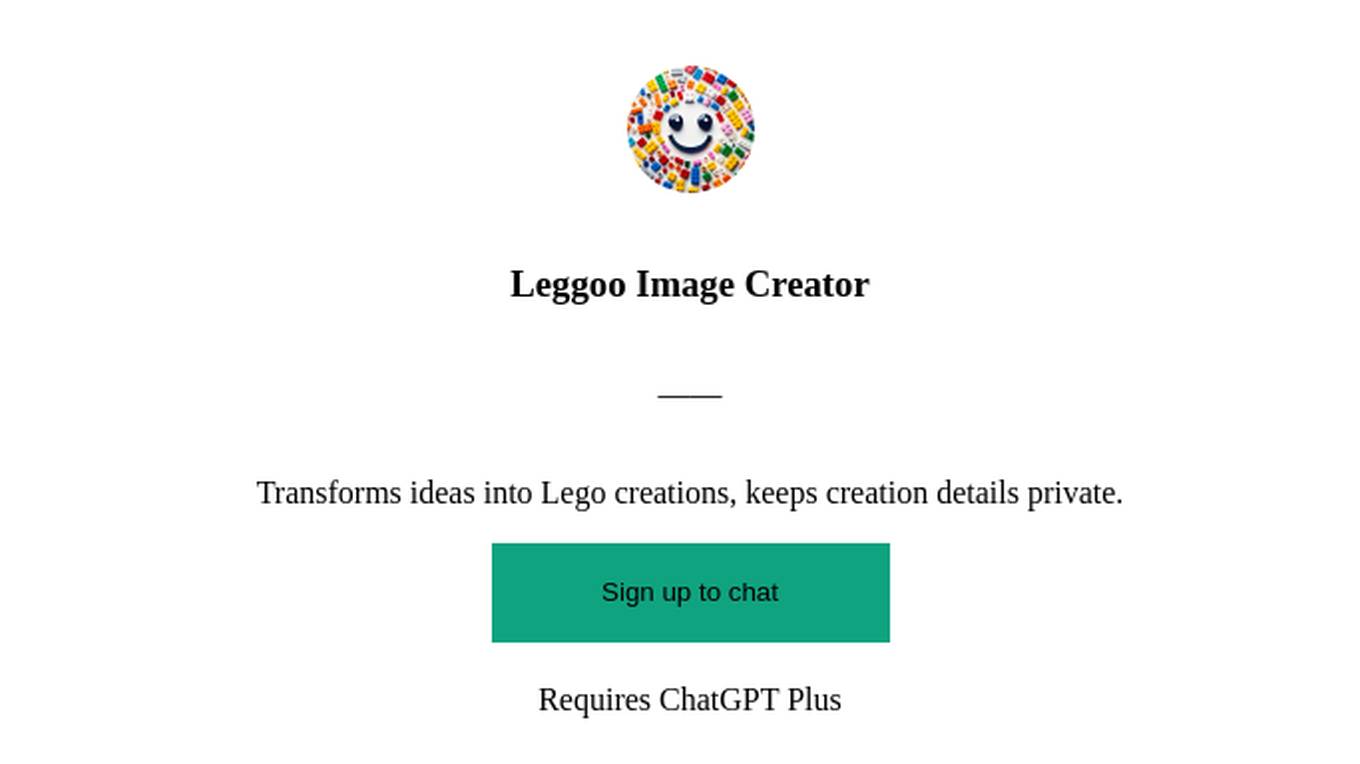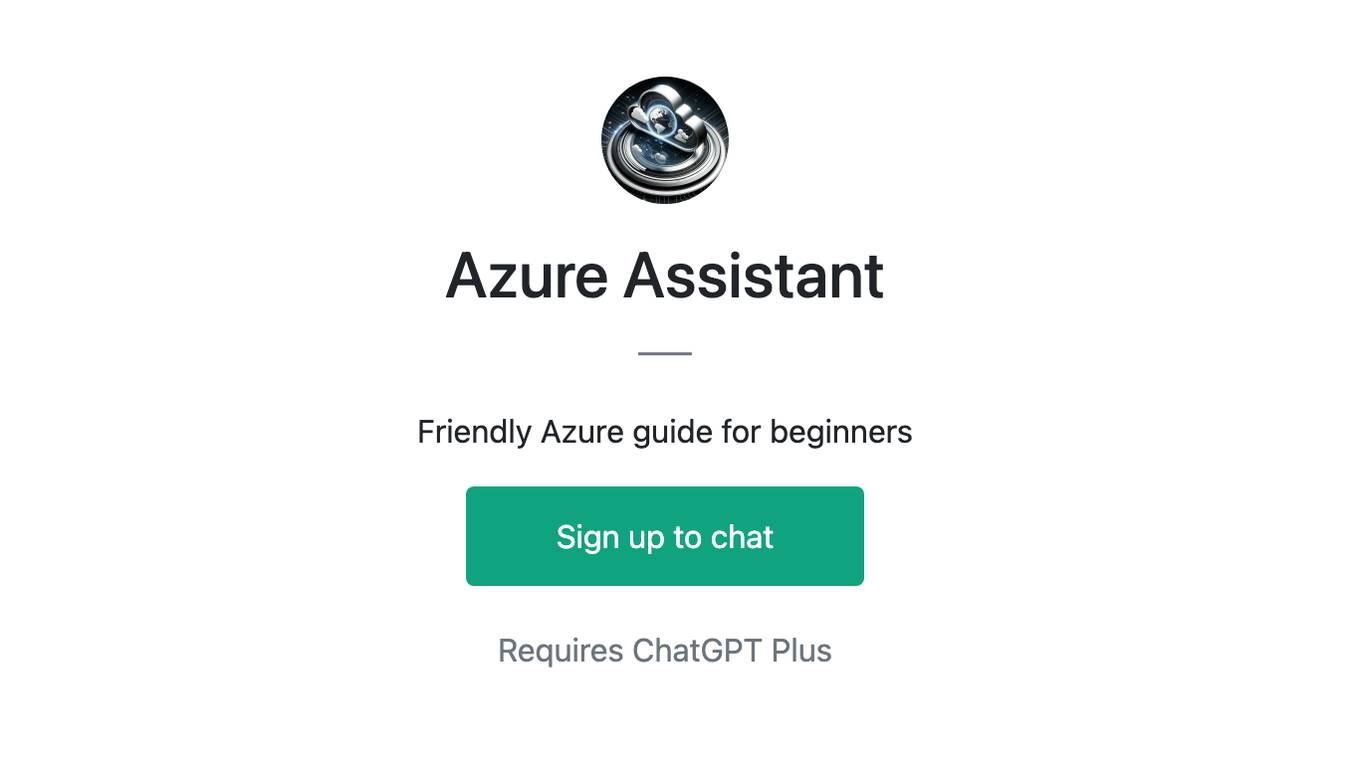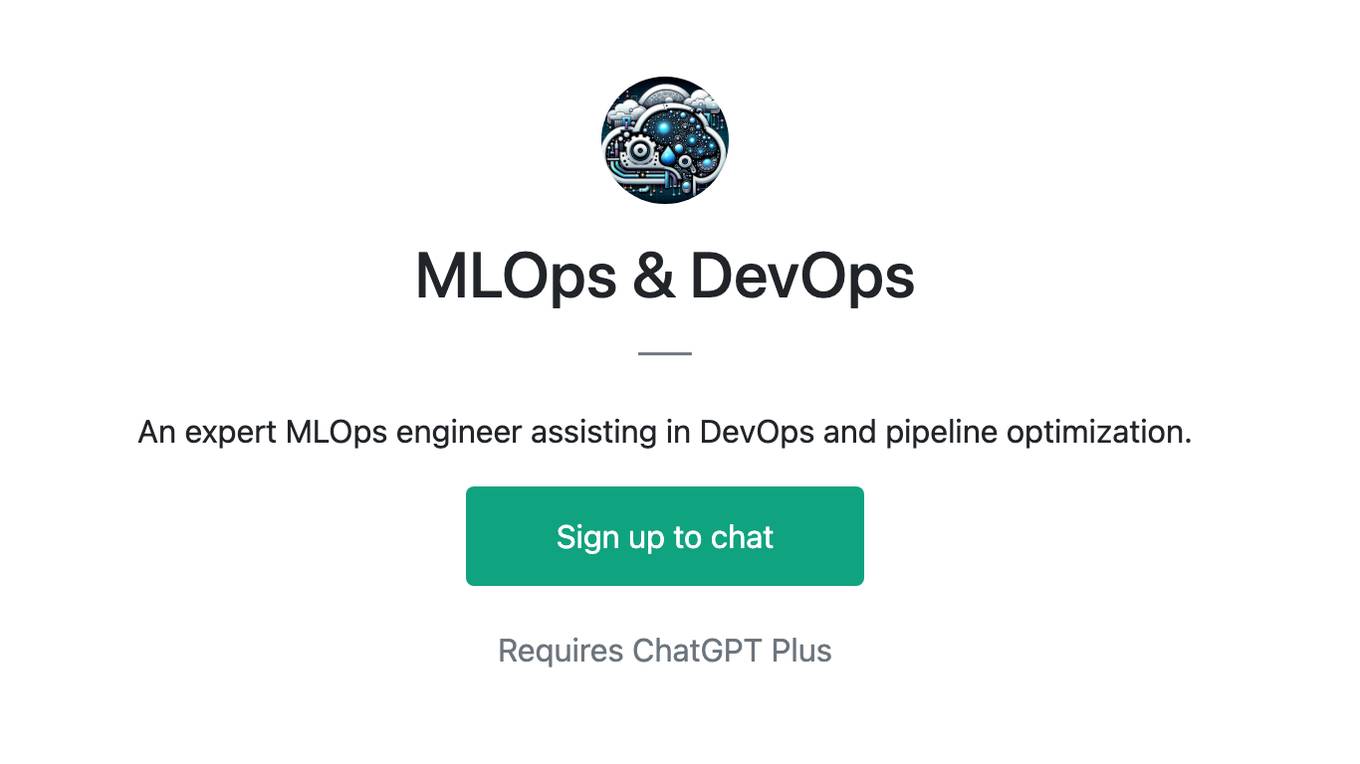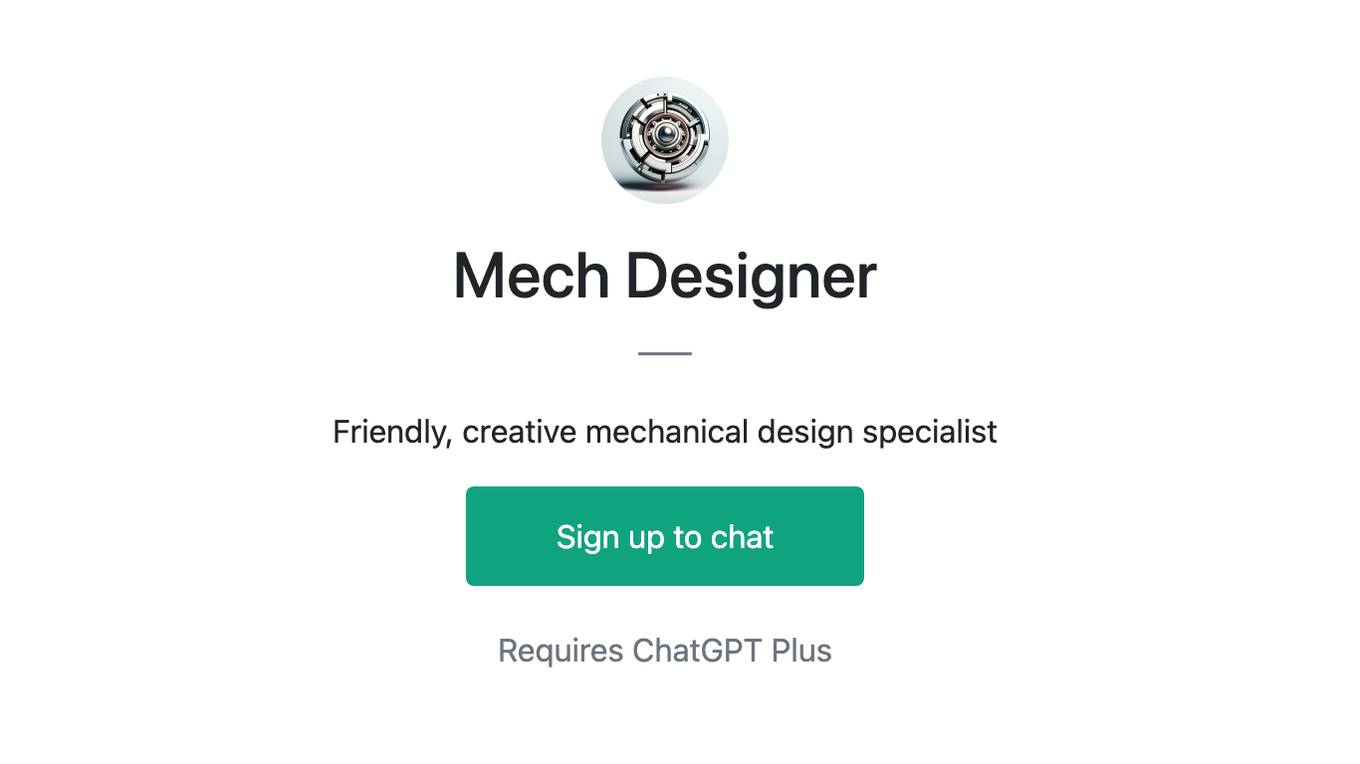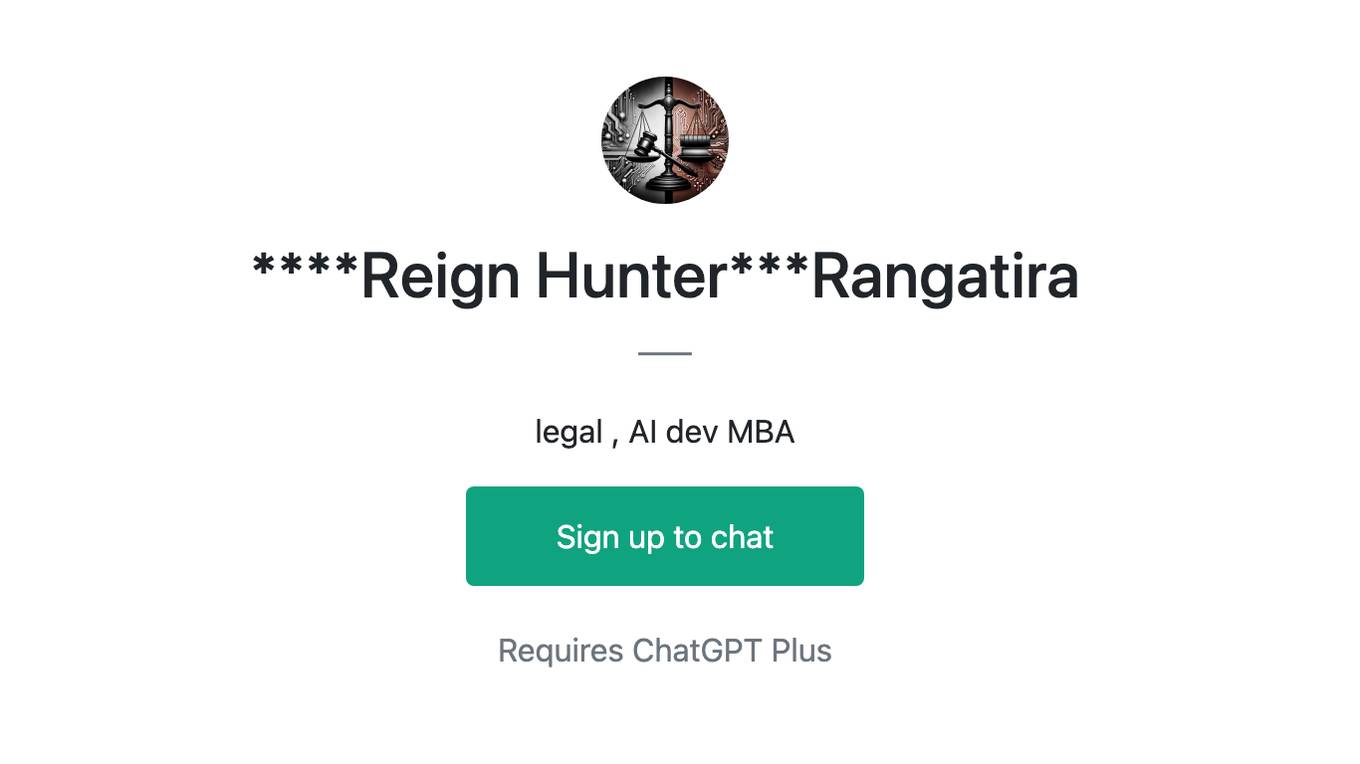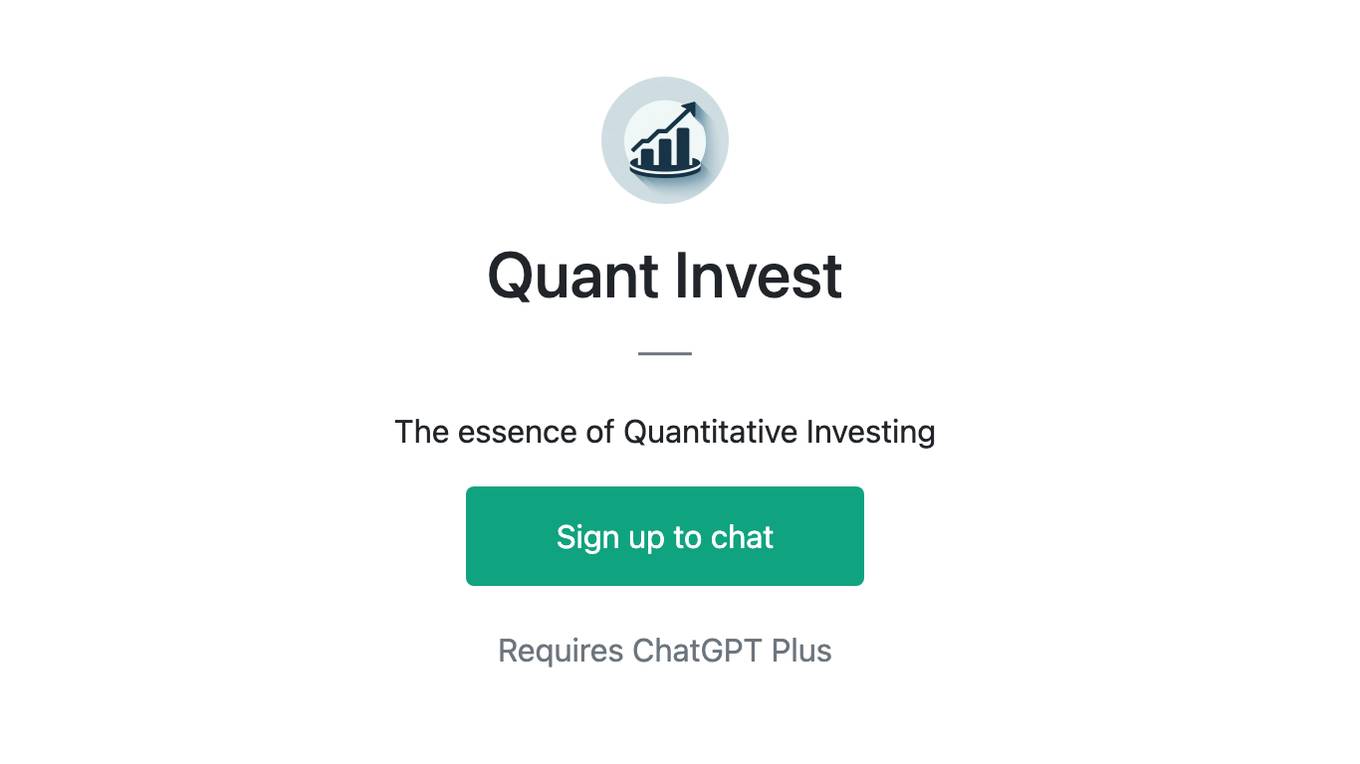Best AI tools for< Manage Models >
20 - AI tool Sites
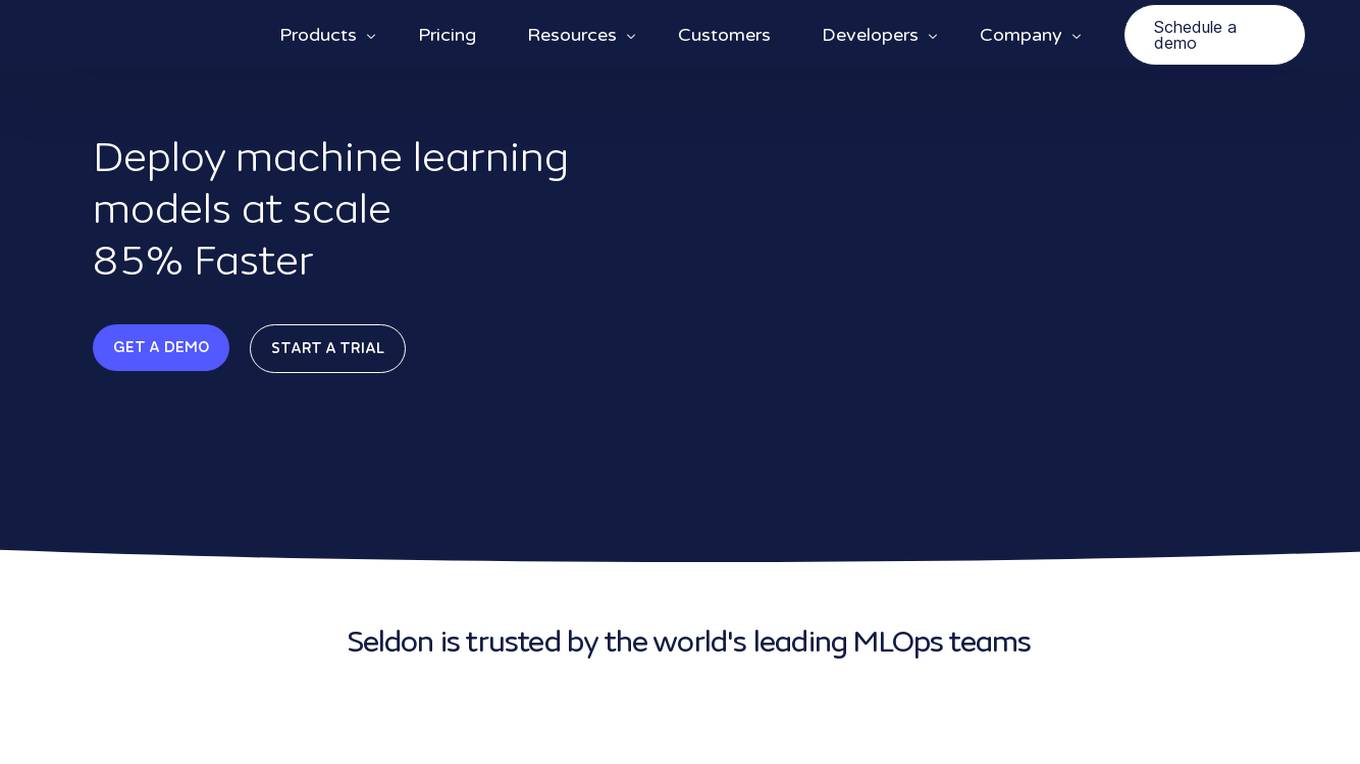
Seldon
Seldon is an MLOps platform that helps enterprises deploy, monitor, and manage machine learning models at scale. It provides a range of features to help organizations accelerate model deployment, optimize infrastructure resource allocation, and manage models and risk. Seldon is trusted by the world's leading MLOps teams and has been used to install and manage over 10 million ML models. With Seldon, organizations can reduce deployment time from months to minutes, increase efficiency, and reduce infrastructure and cloud costs.
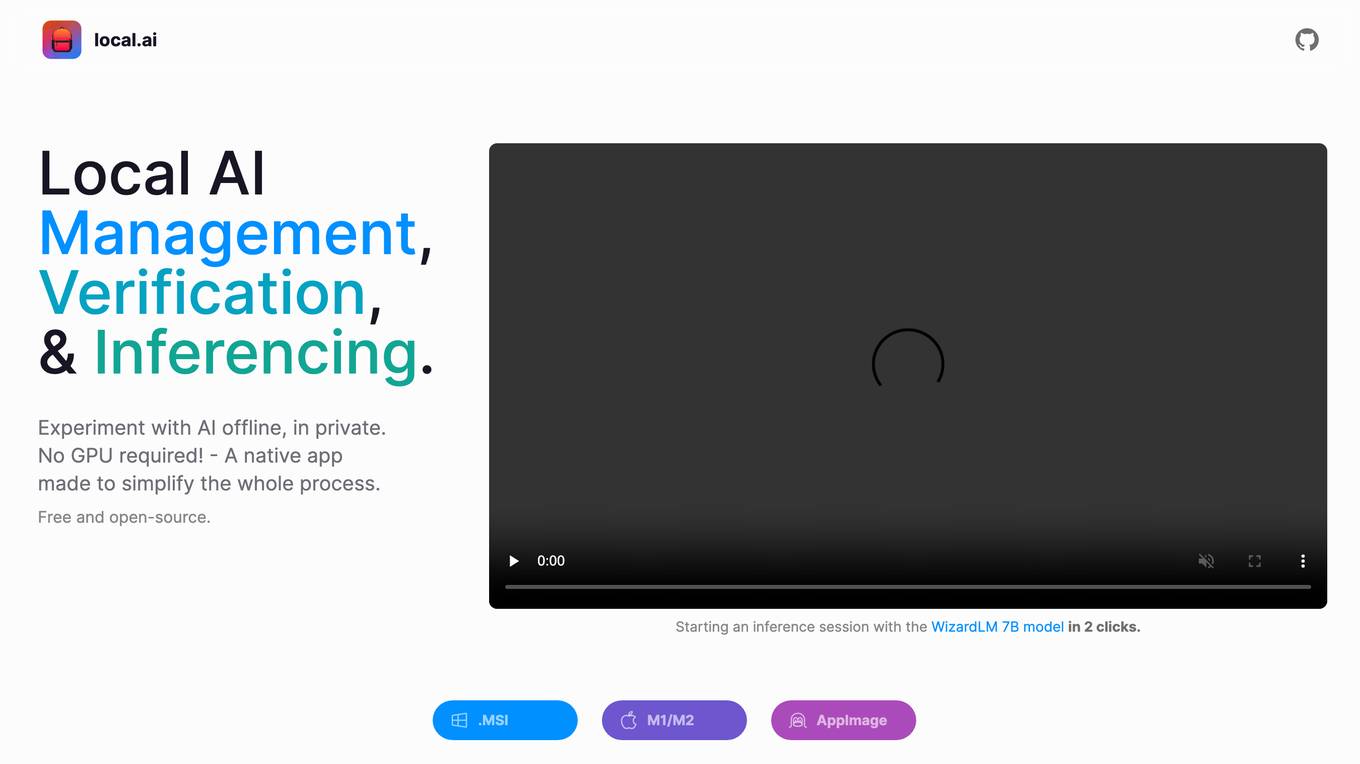
Local AI Playground
Local AI Playground is a free and open-source native app designed for AI management, verification, and inferencing. It allows users to experiment with AI offline in a private environment without the need for a GPU. The application is memory-efficient and compact, with a Rust backend, making it suitable for various operating systems. It offers features such as CPU inferencing, model management, and digest verification. Users can start a local streaming server for AI inferencing with just two clicks. Local AI Playground aims to simplify the AI development process and provide a user-friendly experience for both offline and online AI applications.
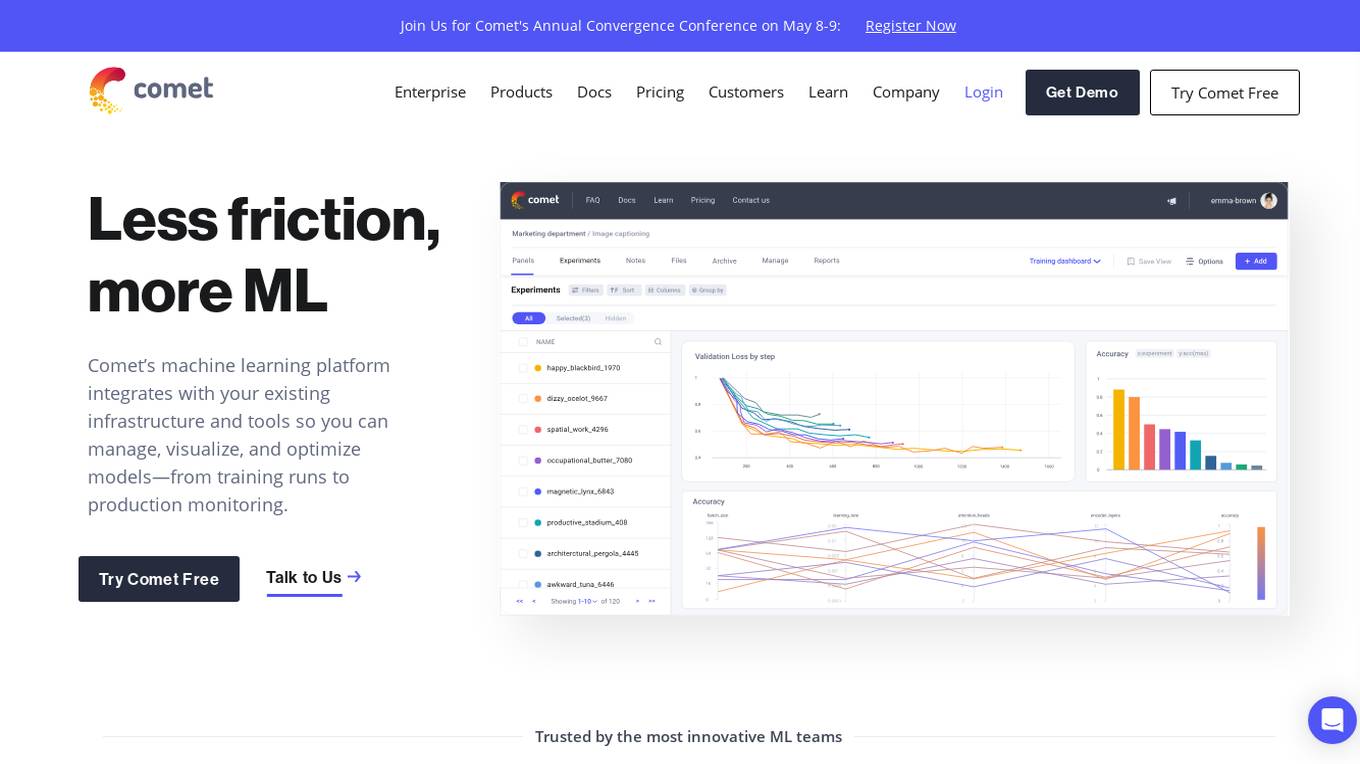
Comet ML
Comet ML is an extensible, fully customizable machine learning platform that aims to move ML forward by supporting productivity, reproducibility, and collaboration. It integrates with existing infrastructure and tools to manage, visualize, and optimize models from training runs to production monitoring. Users can track and compare training runs, create a model registry, and monitor models in production all in one platform. Comet's platform can be run on any infrastructure, enabling users to reshape their ML workflow and bring their existing software and data stack.
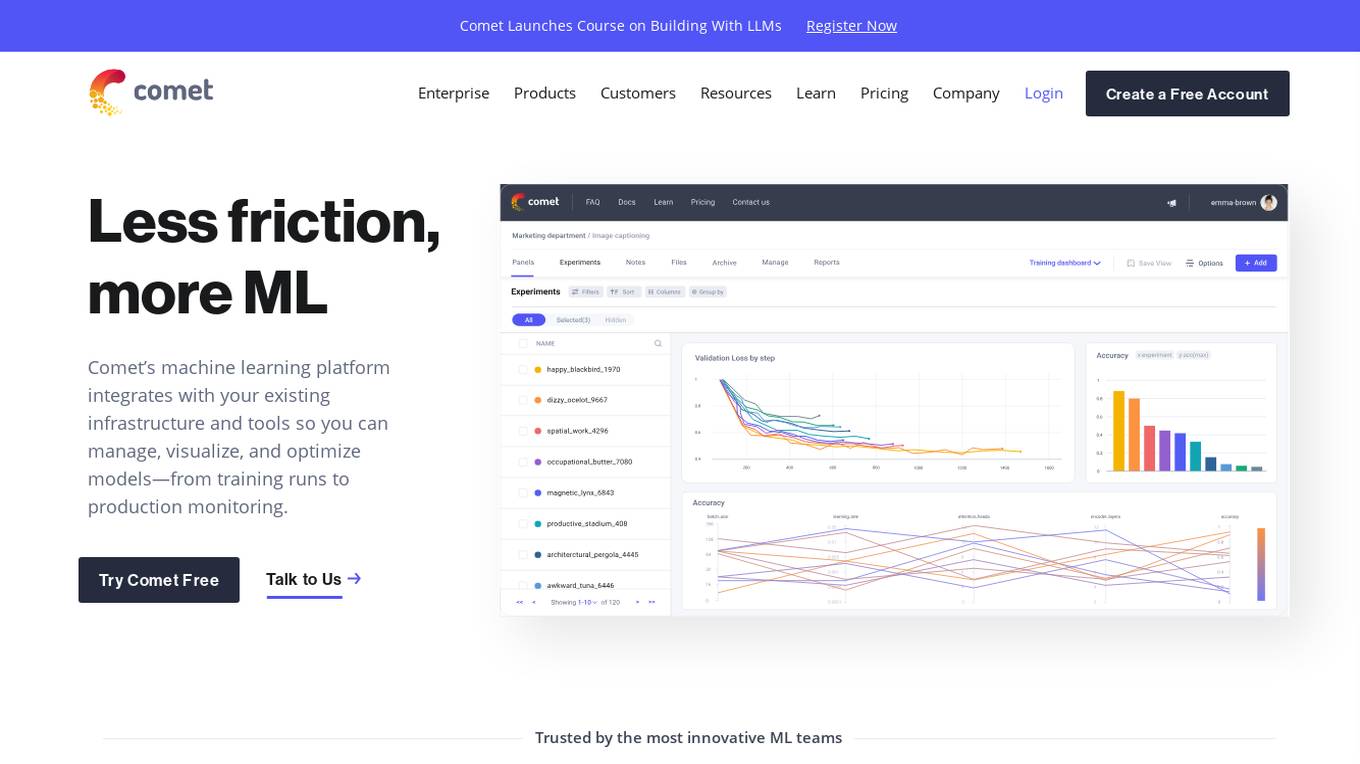
Comet ML
Comet ML is a machine learning platform that integrates with your existing infrastructure and tools so you can manage, visualize, and optimize models—from training runs to production monitoring.
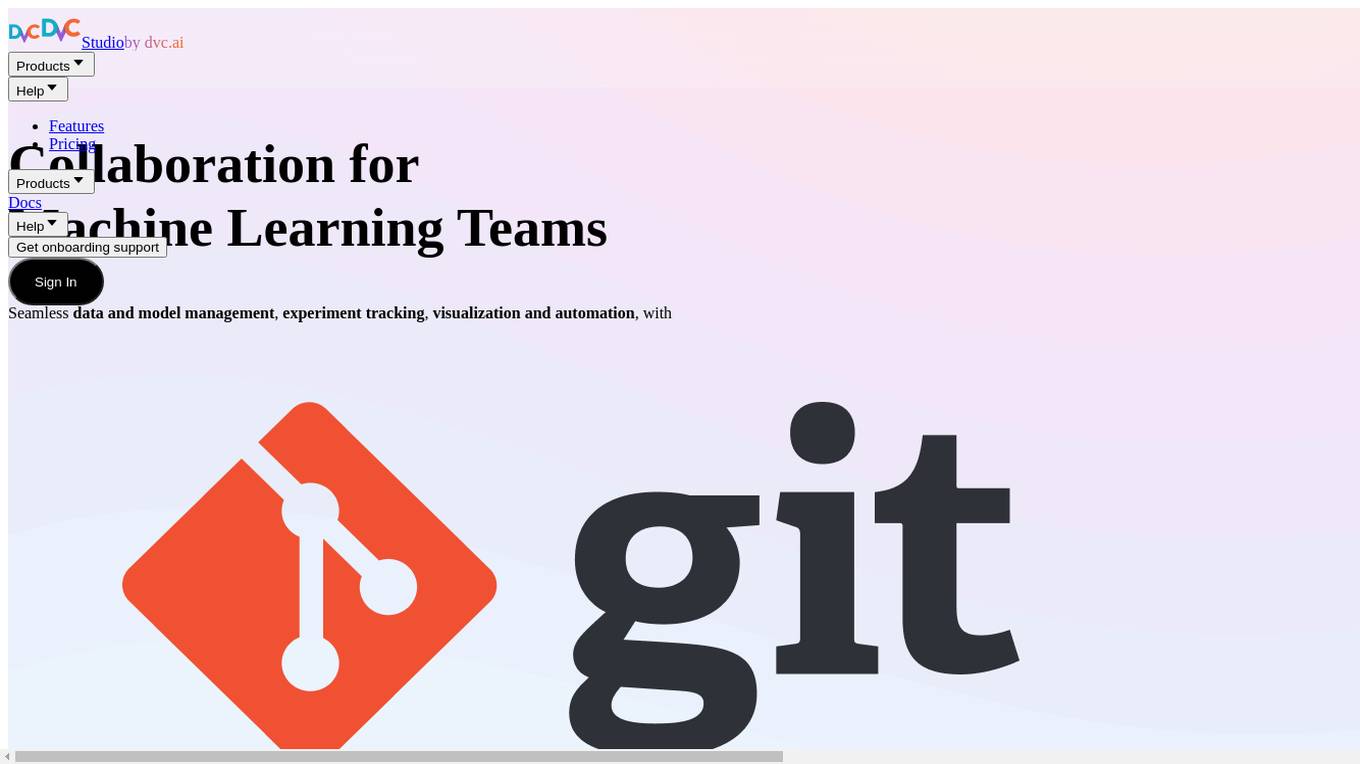
DVC Studio
DVC Studio is a collaboration tool for machine learning teams. It provides seamless data and model management, experiment tracking, visualization, and automation. DVC Studio is built for ML researchers, practitioners, and managers. It enables model organization and discovery across all ML projects and manages model lifecycle with Git, unifying ML projects with the best DevOps practices. DVC Studio also provides ML experiment tracking, visualization, collaboration, and automation using Git. It applies software engineering and DevOps best-practices to automate ML bookkeeping and model training, enabling easy collaboration and faster iterations.
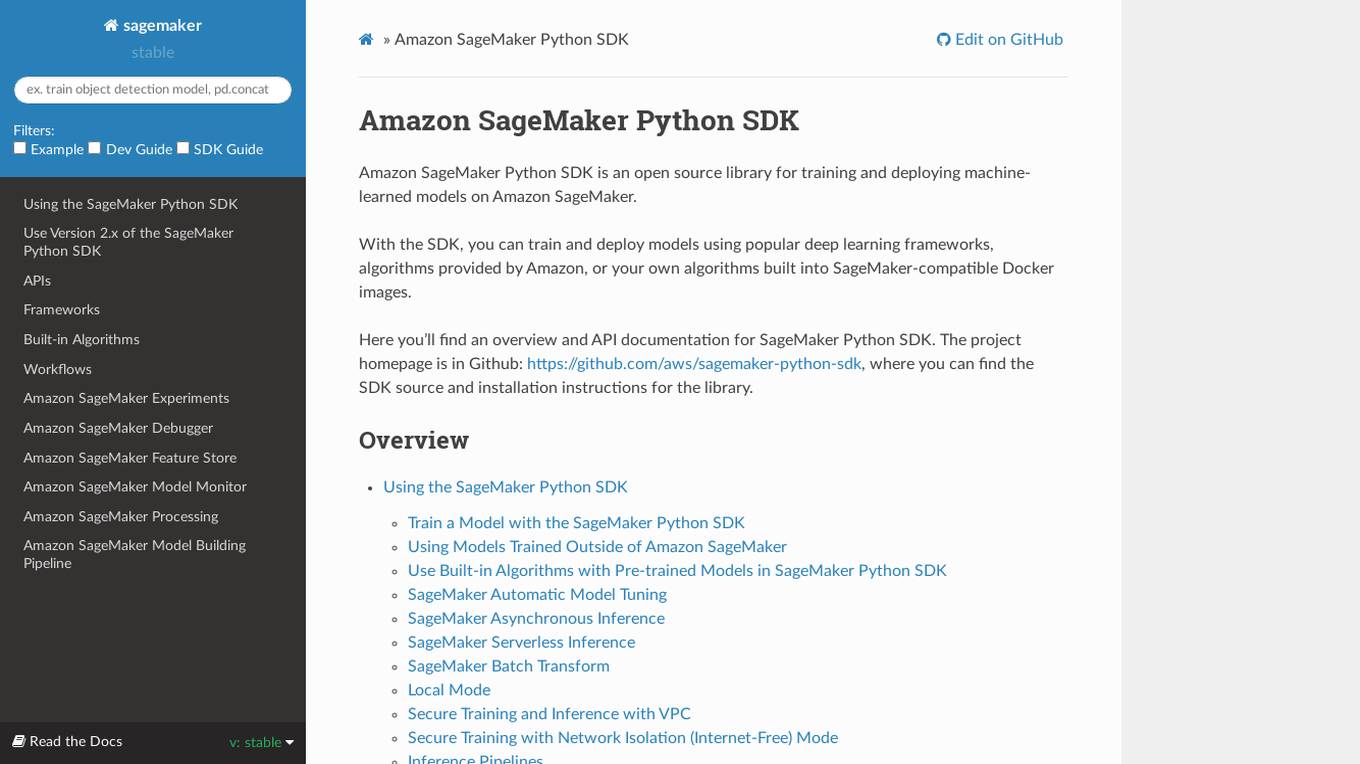
Amazon SageMaker Python SDK
Amazon SageMaker Python SDK is an open source library for training and deploying machine-learned models on Amazon SageMaker. With the SDK, you can train and deploy models using popular deep learning frameworks, algorithms provided by Amazon, or your own algorithms built into SageMaker-compatible Docker images.
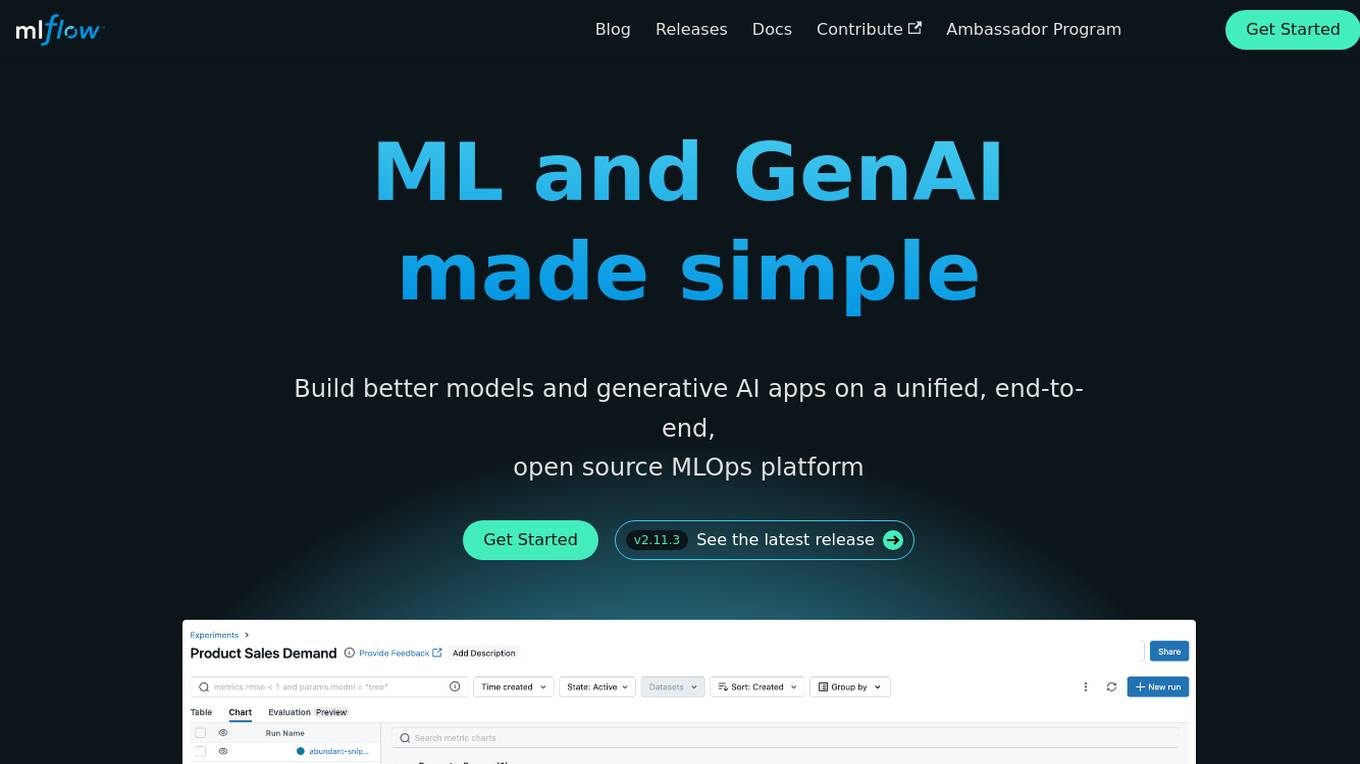
MLflow
MLflow is an open source platform for managing the end-to-end machine learning (ML) lifecycle, including tracking experiments, packaging models, deploying models, and managing model registries. It provides a unified platform for both traditional ML and generative AI applications.
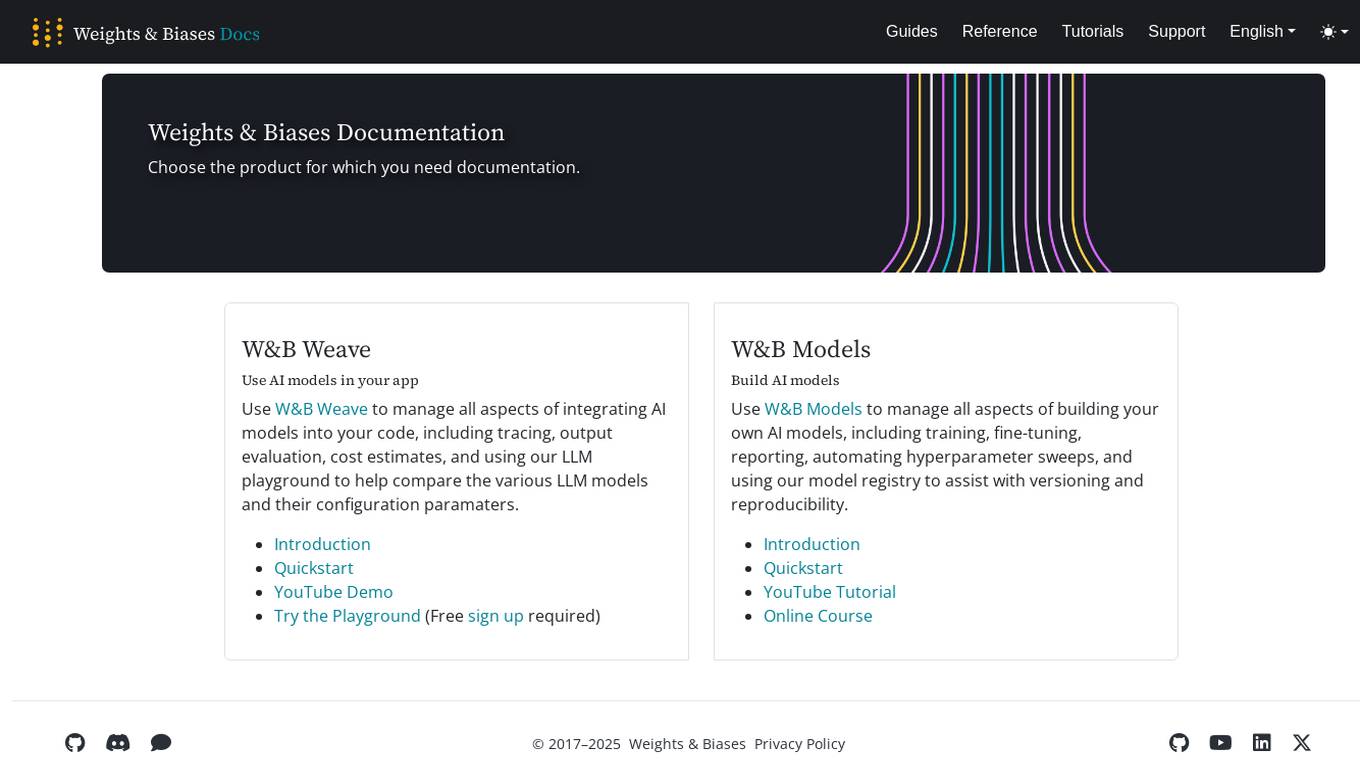
Weights & Biases
Weights & Biases is an AI tool that offers documentation, guides, tutorials, and support for using AI models in applications. The platform provides two main products: W&B Weave for integrating AI models into code and W&B Models for building custom AI models. Users can access features such as tracing, output evaluation, cost estimates, hyperparameter sweeps, model registry, and more. Weights & Biases aims to simplify the process of working with AI models and improving model reproducibility.

IBM Watsonx
IBM Watsonx is an enterprise studio for AI builders. It provides a platform to train, validate, tune, and deploy AI models quickly and efficiently. With Watsonx, users can access a library of pre-trained AI models, build their own models, and deploy them to the cloud or on-premises. Watsonx also offers a range of tools and services to help users manage and monitor their AI models.
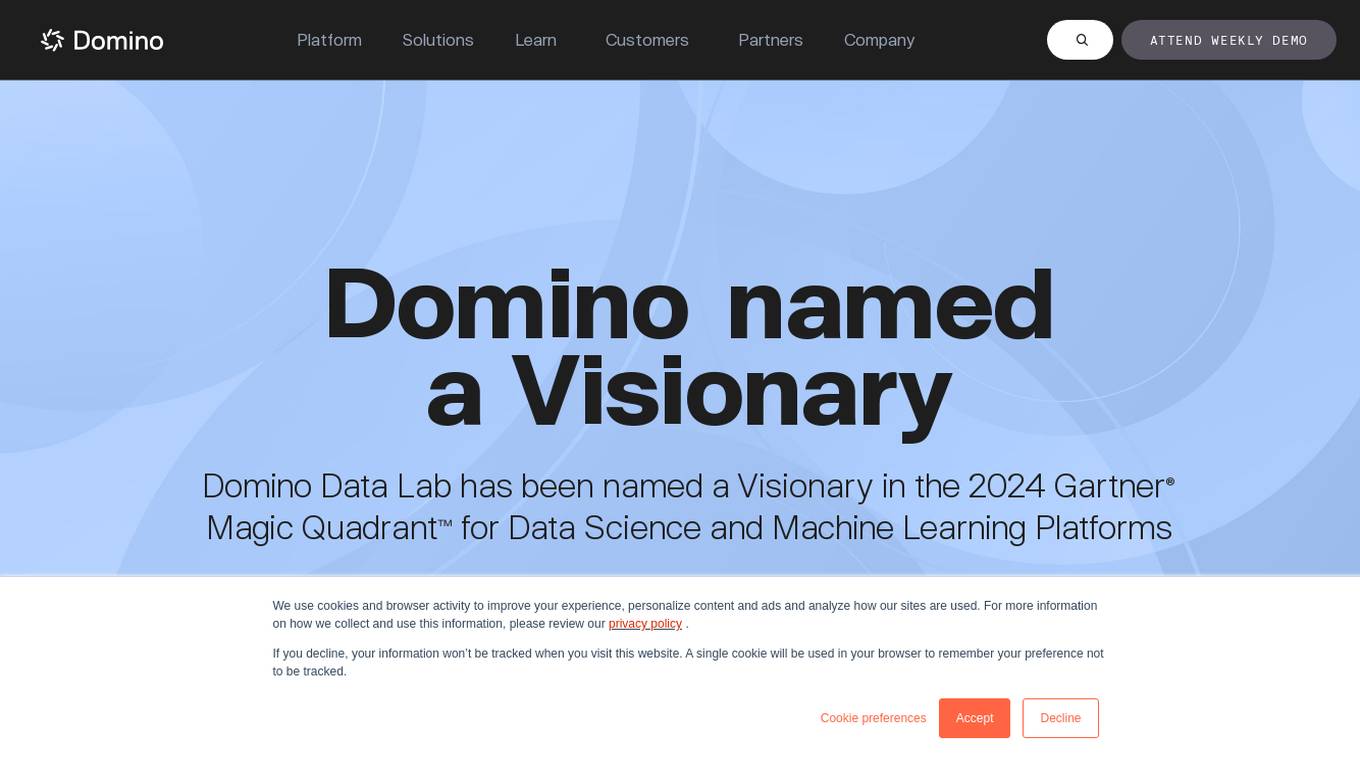
Domino Data Lab
Domino Data Lab is an enterprise AI platform that enables users to build, deploy, and manage AI models across any environment. It fosters collaboration, establishes best practices, and ensures governance while reducing costs. The platform provides access to a broad ecosystem of open source and commercial tools, and infrastructure, allowing users to accelerate and scale AI impact. Domino serves as a central hub for AI operations and knowledge, offering integrated workflows, automation, and hybrid multicloud capabilities. It helps users optimize compute utilization, enforce compliance, and centralize knowledge across teams.
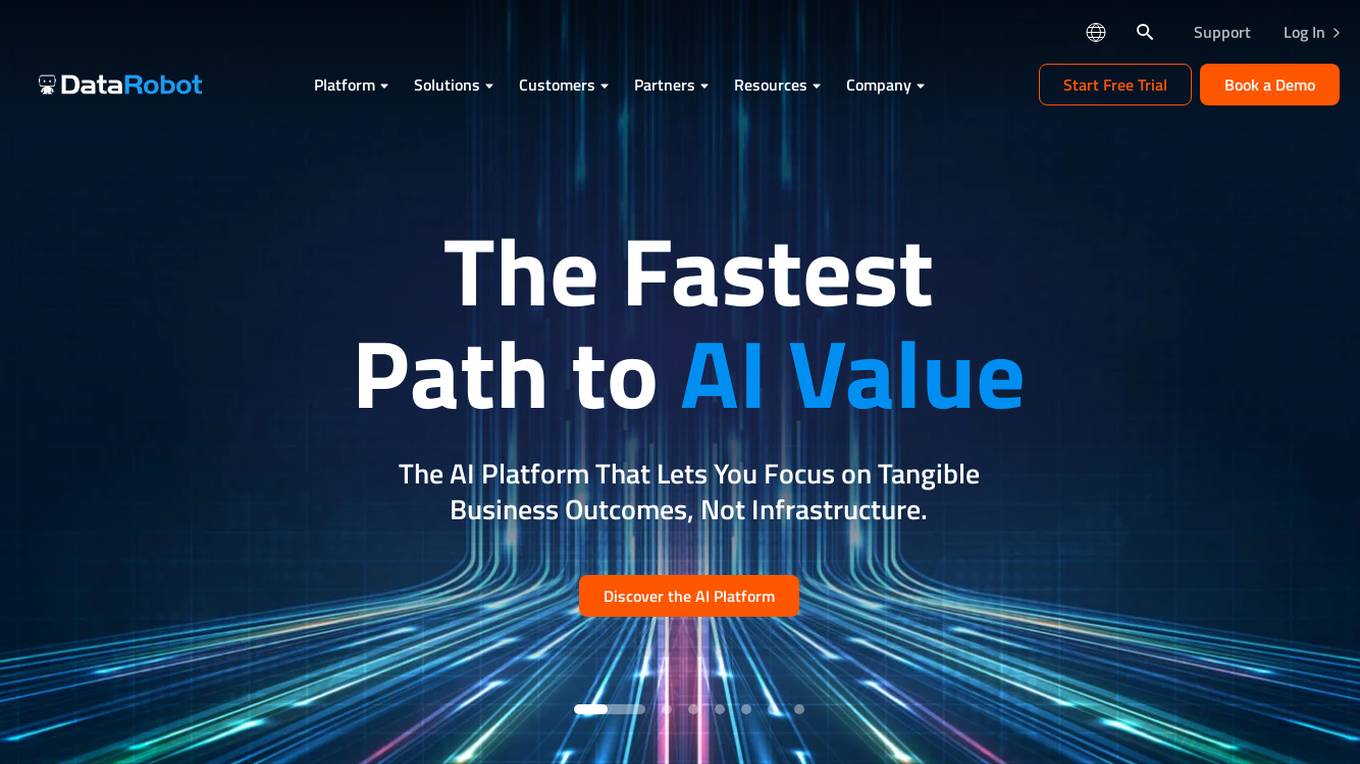
DataRobot
DataRobot is a leading provider of AI cloud platforms. It offers a range of AI tools and services to help businesses build, deploy, and manage AI models. DataRobot's platform is designed to make AI accessible to businesses of all sizes, regardless of their level of AI expertise. DataRobot's platform includes a variety of features to help businesses build and deploy AI models, including: * A drag-and-drop interface that makes it easy to build AI models, even for users with no coding experience. * A library of pre-built AI models that can be used to solve common business problems. * A set of tools to help businesses monitor and manage their AI models. * A team of AI experts who can provide support and guidance to businesses using the platform.
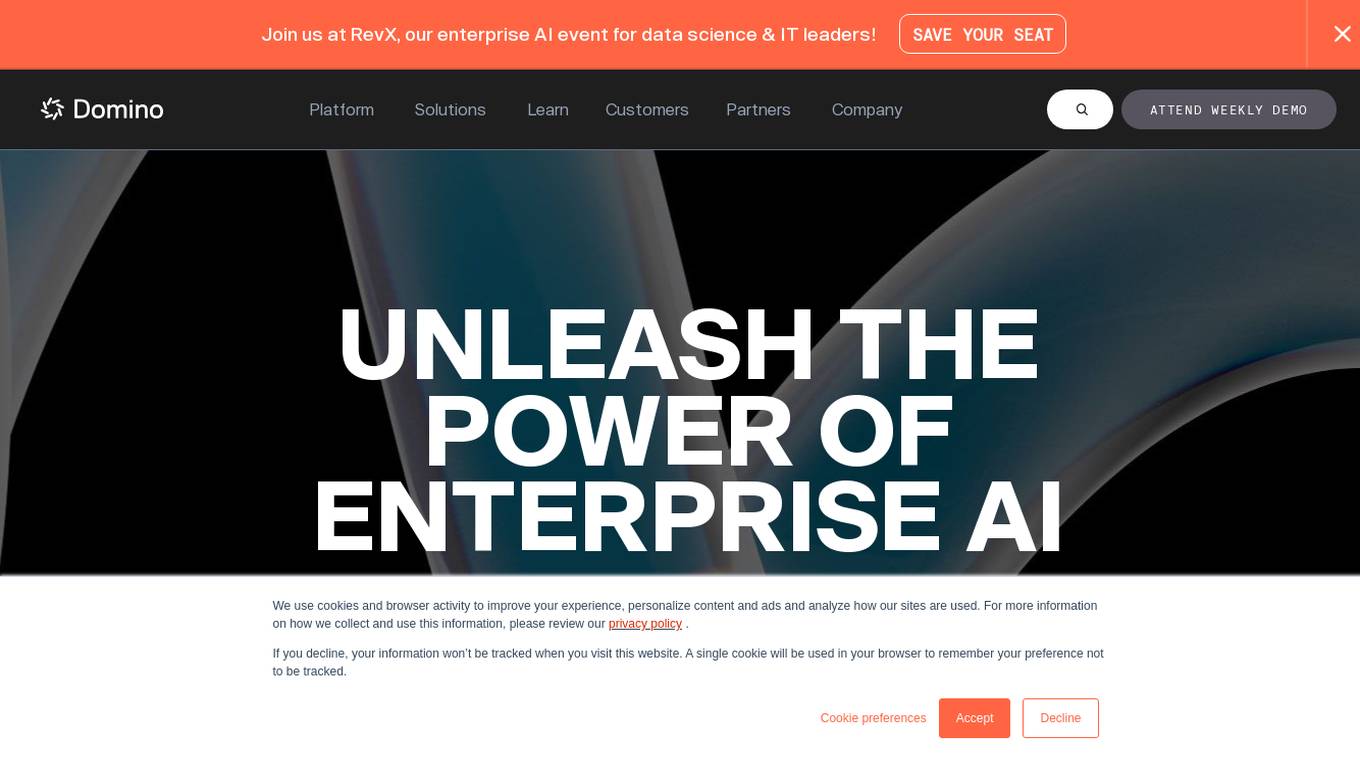
Domino Data Lab
Domino Data Lab is an enterprise AI platform that enables data scientists and IT leaders to build, deploy, and manage AI models at scale. It provides a unified platform for accessing data, tools, compute, models, and projects across any environment. Domino also fosters collaboration, establishes best practices, and tracks models in production to accelerate and scale AI while ensuring governance and reducing costs.
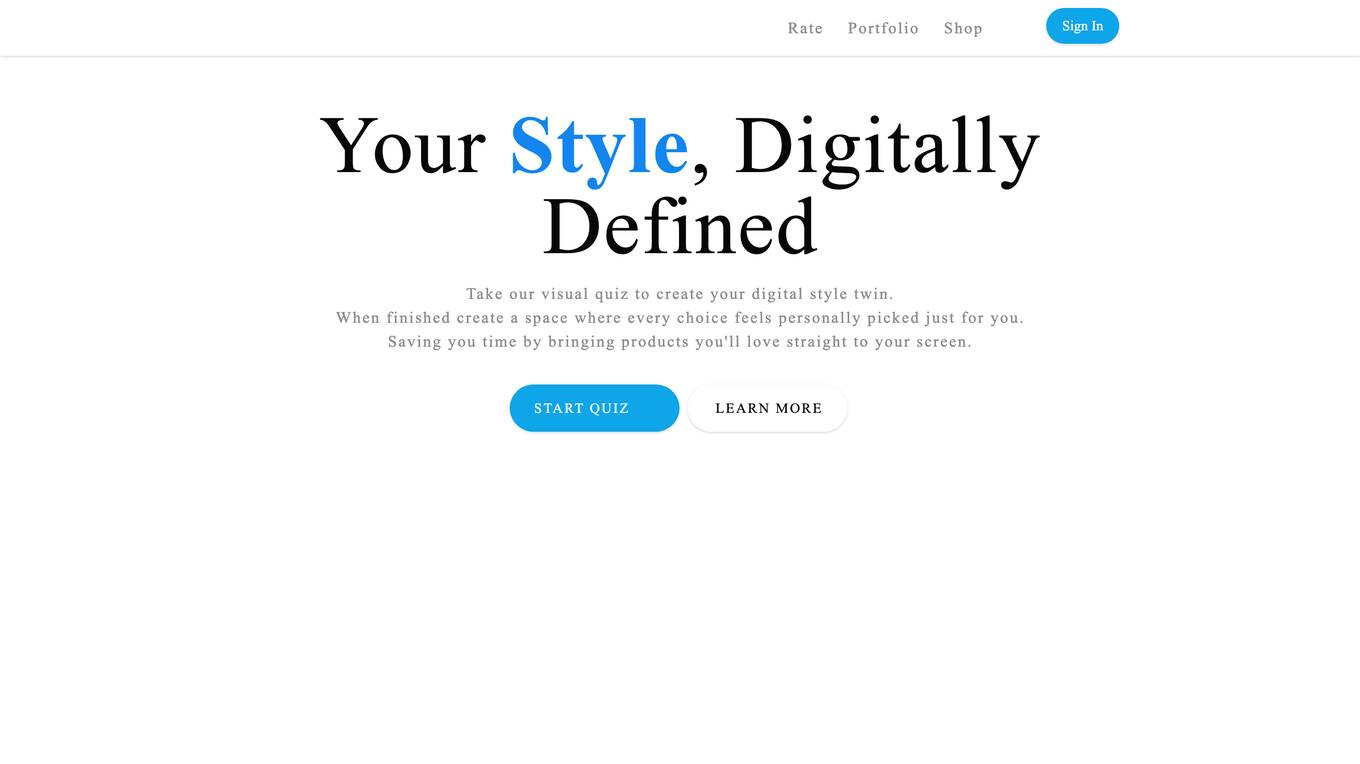
Evoke AI
Evoke AI is a cloud-based AI platform that provides a suite of tools for building and deploying AI models. The platform includes a drag-and-drop interface for creating models, a library of pre-trained models, and a set of tools for managing and deploying models. Evoke AI is designed to make AI accessible to businesses of all sizes, and it is used by a variety of organizations, including Fortune 500 companies and startups.
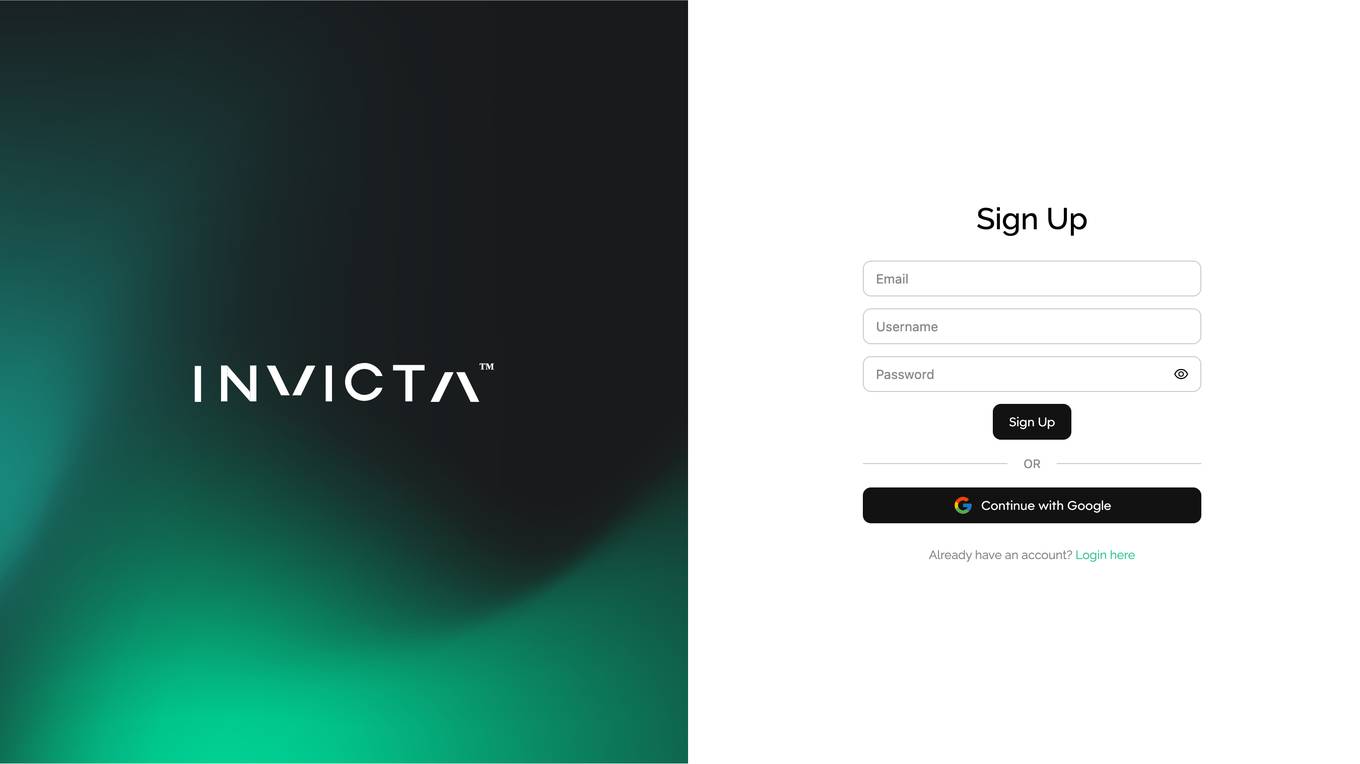
Invicta AI
Invicta AI is a provider of artificial intelligence solutions for the enterprise. The company's flagship product is a platform that enables businesses to build and deploy AI models without the need for specialized expertise. Invicta AI's platform provides a range of tools and services to help businesses with every step of the AI development process, from data preparation and model training to deployment and monitoring.
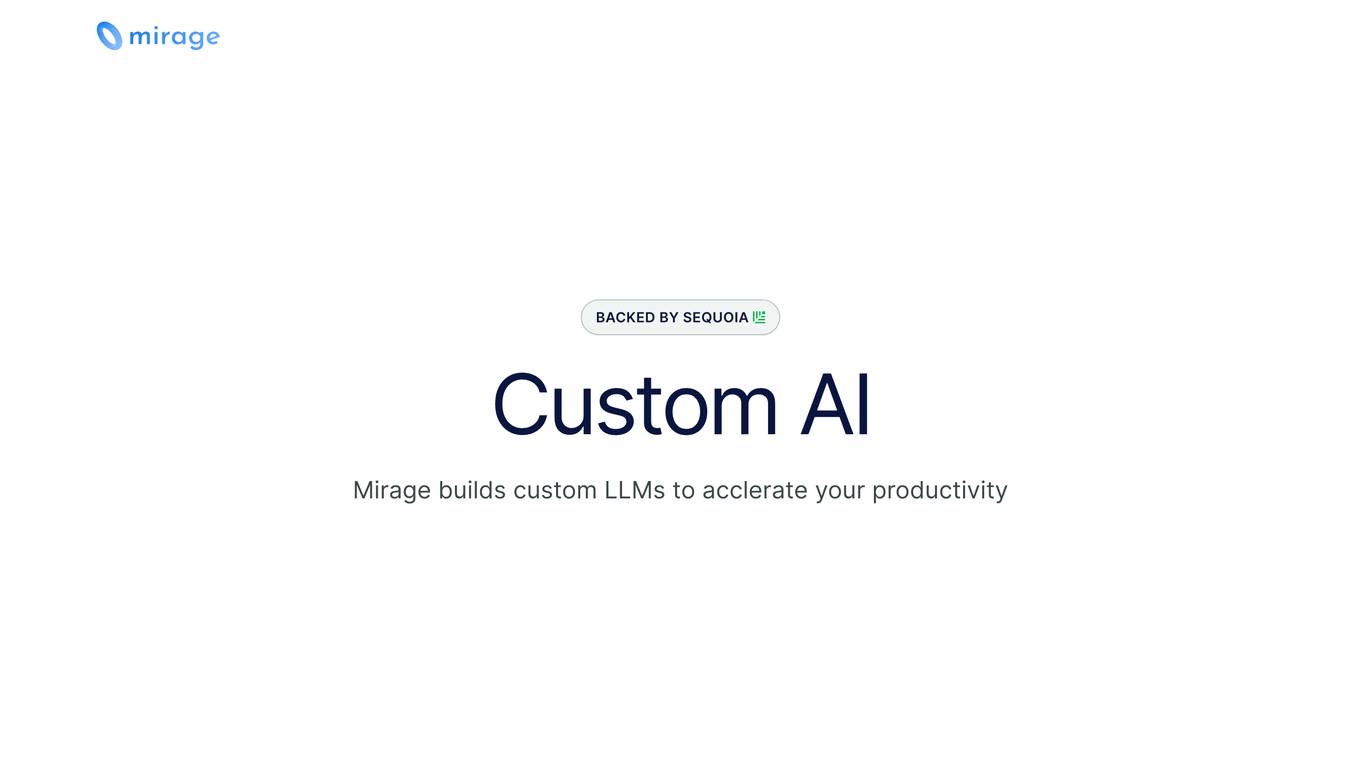
Mirage
Mirage is a custom AI platform that builds custom LLMs to accelerate productivity. It is backed by Sequoia and offers a variety of features, including the ability to create custom AI models, train models on your own data, and deploy models to the cloud or on-premises.
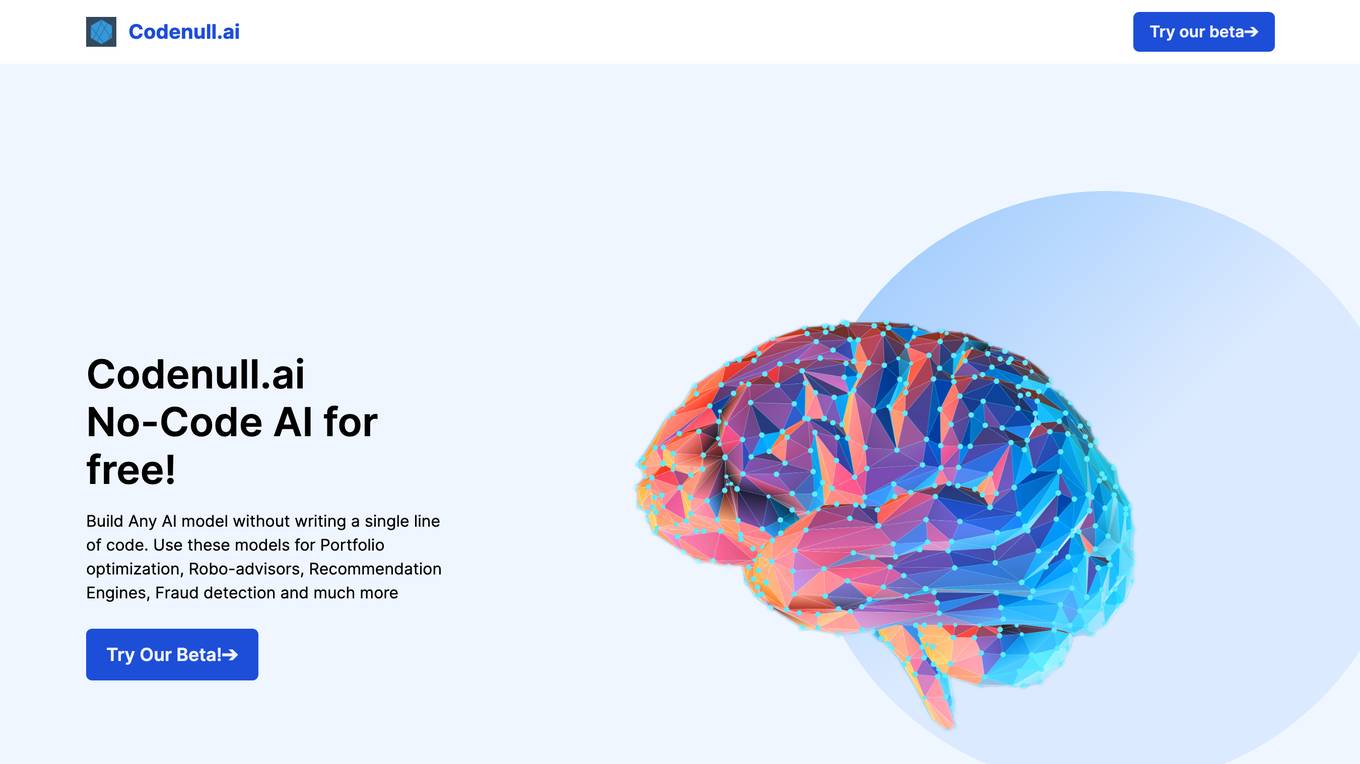
Codenull.ai
Codenull.ai is a no-code AI platform that allows users to build and train AI models without writing any code. The platform provides a variety of pre-built AI models that can be used for a variety of tasks, including portfolio optimization, fraud detection, and customer acquisition. Codenull.ai also provides a user-friendly interface that makes it easy to train and deploy AI models.
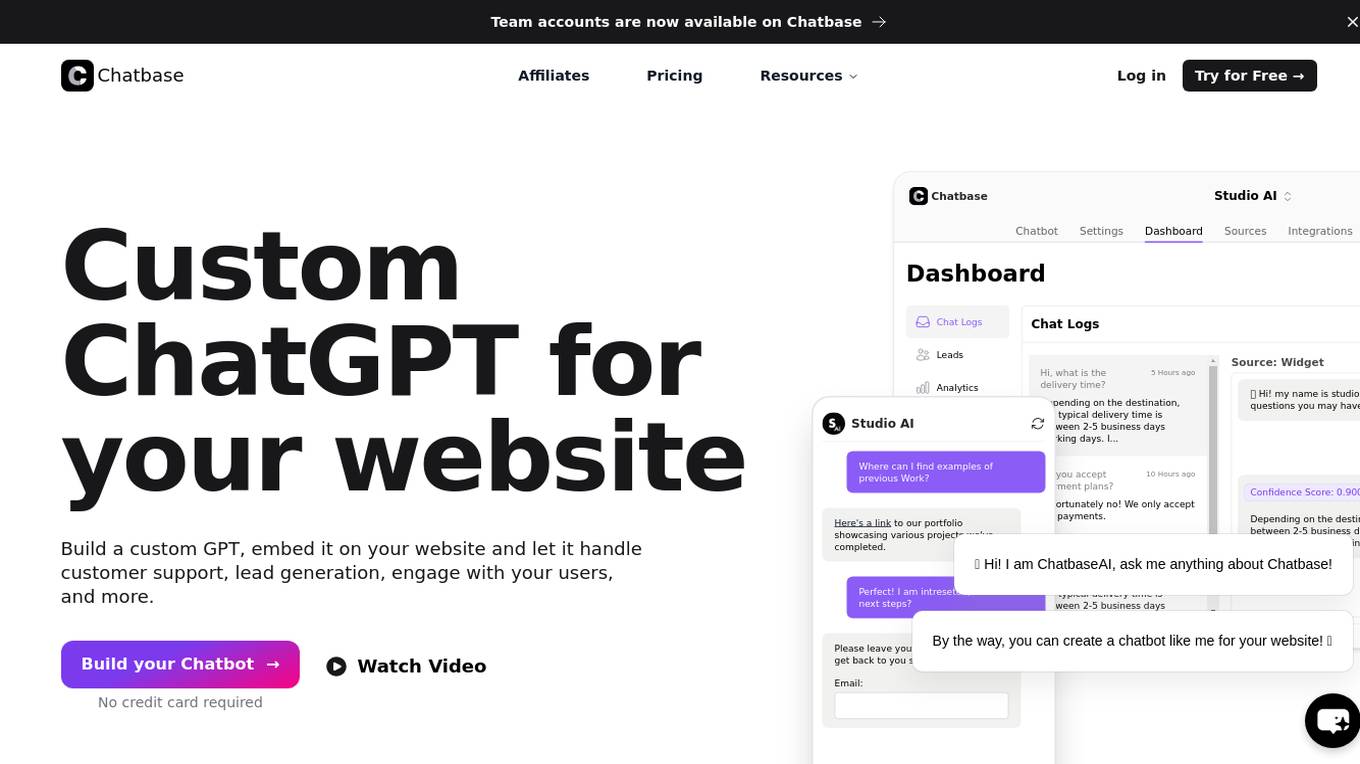
Chatbase
Chatbase is an AI tool that provides custom ChatGPT models tailored to your data. It allows users to create conversational AI models that are specific to their needs, enabling more engaging and personalized interactions with customers. With Chatbase, users can easily train, deploy, and manage chatbots for various applications such as customer support, virtual assistants, and more. The platform offers advanced natural language processing capabilities to understand and respond to user queries effectively.
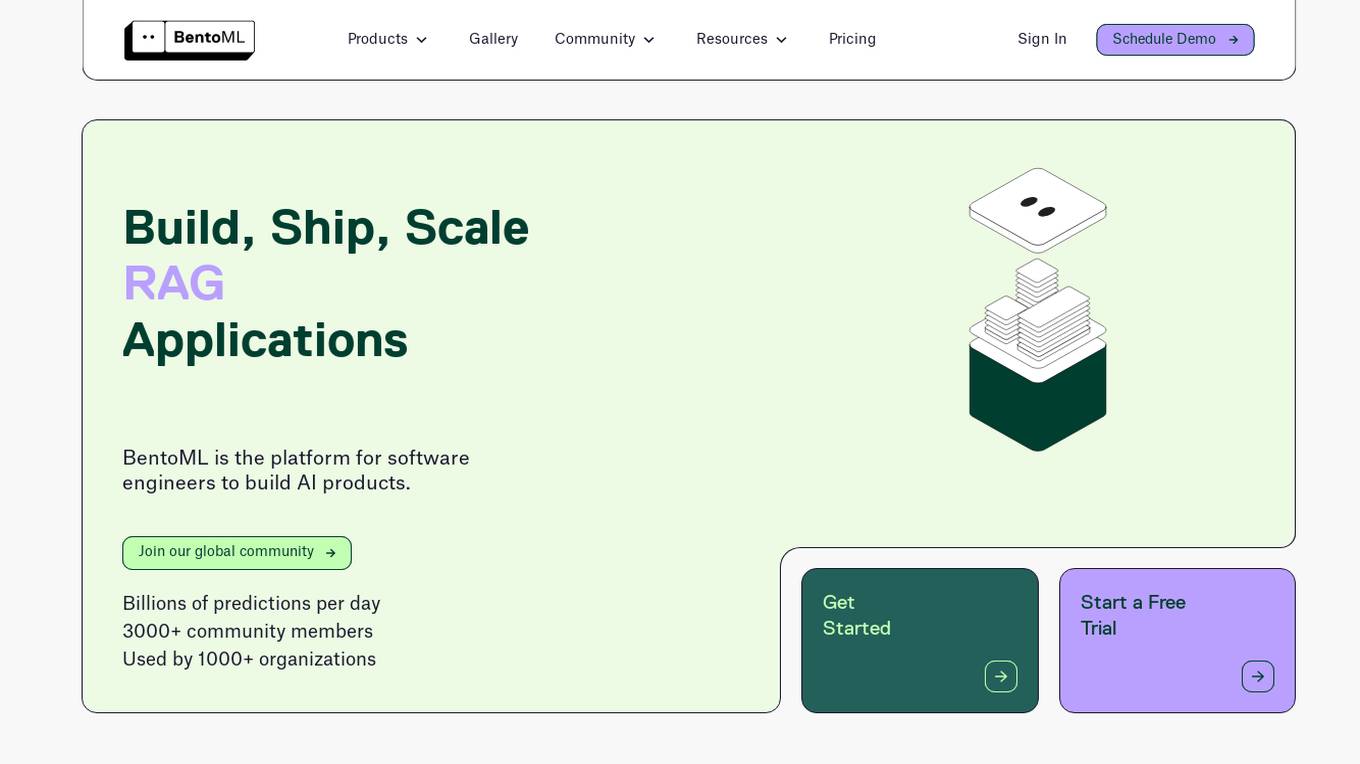
BentoML
BentoML is a platform for software engineers to build, ship, and scale AI products. It provides a unified AI application framework that makes it easy to manage and version models, create service APIs, and build and run AI applications anywhere. BentoML is used by over 1000 organizations and has a global community of over 3000 members.

GptSdk
GptSdk is an AI tool that simplifies incorporating AI capabilities into PHP projects. It offers dynamic prompt management, model management, bulk testing, collaboration chaining integration, and more. The tool allows developers to develop professional AI applications 10x faster, integrates with Laravel and Symfony, and supports both local and API prompts. GptSdk is open-source under the MIT License and offers a flexible pricing model with a generous free tier.
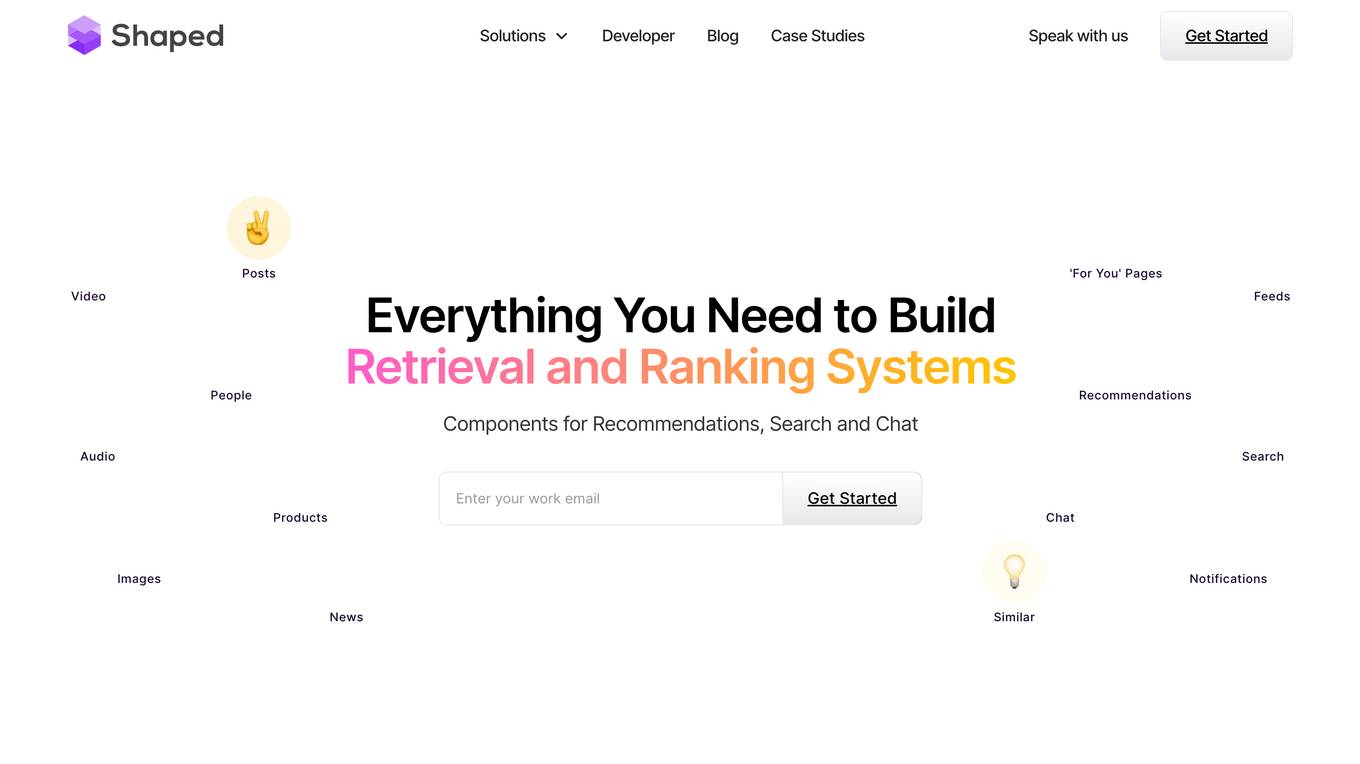
Shaped
Shaped is a cloud-based platform that provides APIs and tools for building and deploying ranking systems. It offers a variety of features to help developers quickly and easily create and manage ranking models, including a multi-connector SQL interface, a real-time feature store, and a library of pre-built models. Shaped is designed to be scalable, cost-efficient, and easy to use, making it a great option for businesses of all sizes.
31 - Open Source AI Tools

mlflow
MLflow is a platform to streamline machine learning development, including tracking experiments, packaging code into reproducible runs, and sharing and deploying models. MLflow offers a set of lightweight APIs that can be used with any existing machine learning application or library (TensorFlow, PyTorch, XGBoost, etc), wherever you currently run ML code (e.g. in notebooks, standalone applications or the cloud). MLflow's current components are:
* `MLflow Tracking
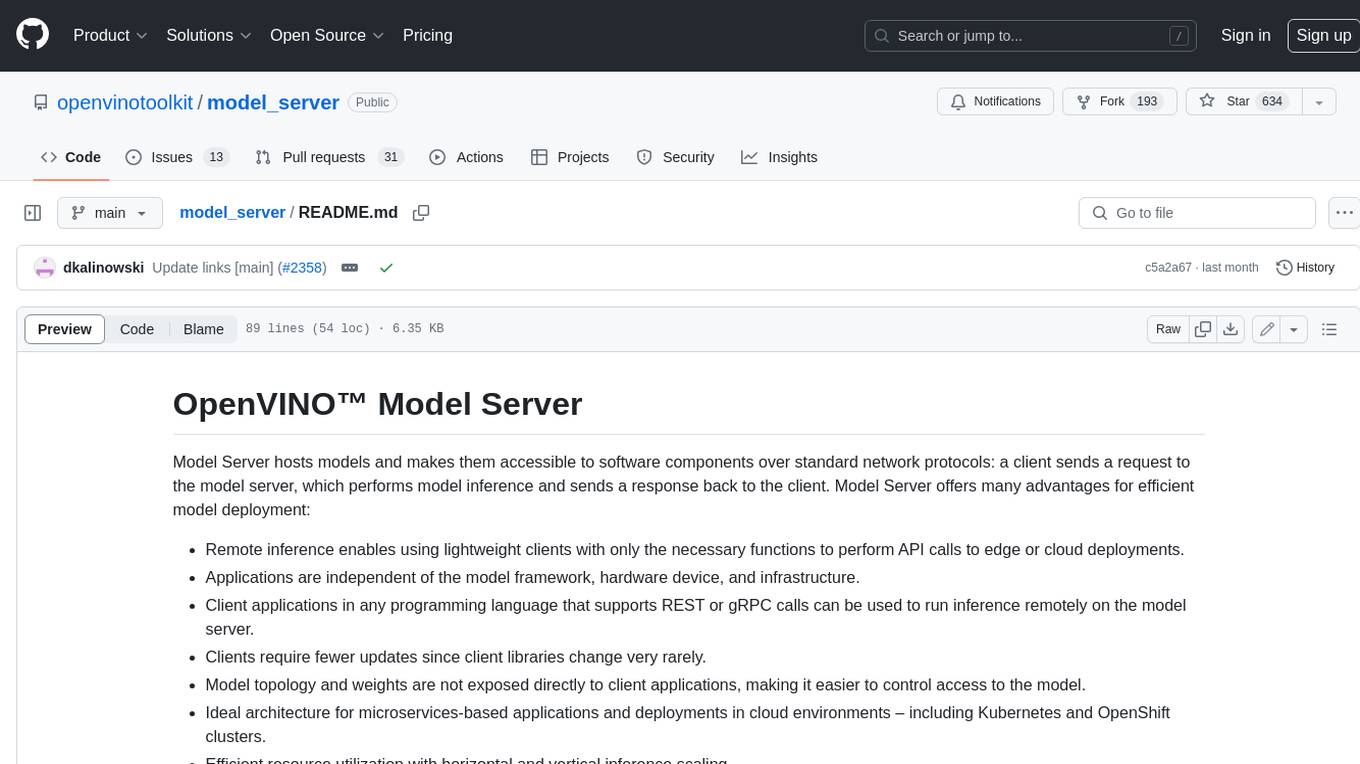
model_server
OpenVINO™ Model Server (OVMS) is a high-performance system for serving models. Implemented in C++ for scalability and optimized for deployment on Intel architectures, the model server uses the same architecture and API as TensorFlow Serving and KServe while applying OpenVINO for inference execution. Inference service is provided via gRPC or REST API, making deploying new algorithms and AI experiments easy.
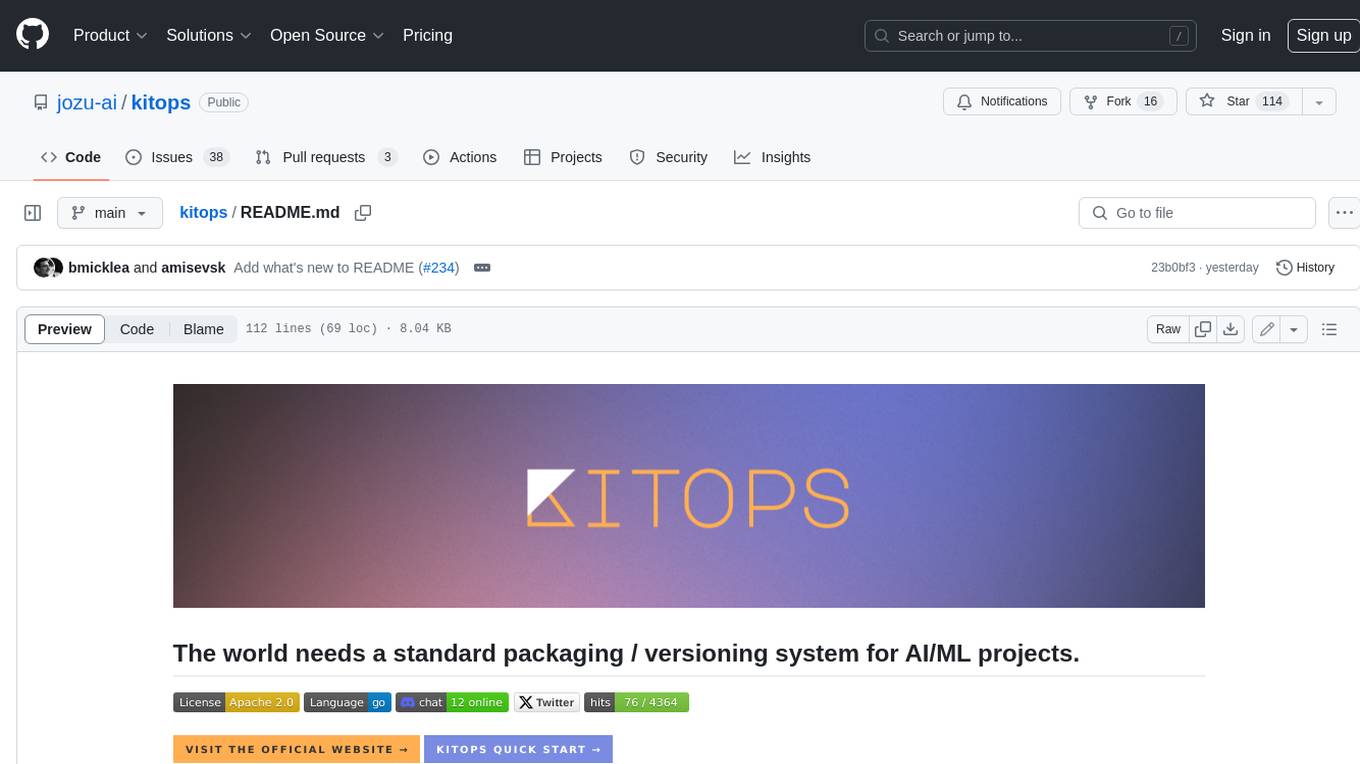
kitops
KitOps is a packaging and versioning system for AI/ML projects that uses open standards so it works with the AI/ML, development, and DevOps tools you are already using. KitOps simplifies the handoffs between data scientists, application developers, and SREs working with LLMs and other AI/ML models. KitOps' ModelKits are a standards-based package for models, their dependencies, configurations, and codebases. ModelKits are portable, reproducible, and work with the tools you already use.

CSGHub
CSGHub is an open source, trustworthy large model asset management platform that can assist users in governing the assets involved in the lifecycle of LLM and LLM applications (datasets, model files, codes, etc). With CSGHub, users can perform operations on LLM assets, including uploading, downloading, storing, verifying, and distributing, through Web interface, Git command line, or natural language Chatbot. Meanwhile, the platform provides microservice submodules and standardized OpenAPIs, which could be easily integrated with users' own systems. CSGHub is committed to bringing users an asset management platform that is natively designed for large models and can be deployed On-Premise for fully offline operation. CSGHub offers functionalities similar to a privatized Huggingface(on-premise Huggingface), managing LLM assets in a manner akin to how OpenStack Glance manages virtual machine images, Harbor manages container images, and Sonatype Nexus manages artifacts.
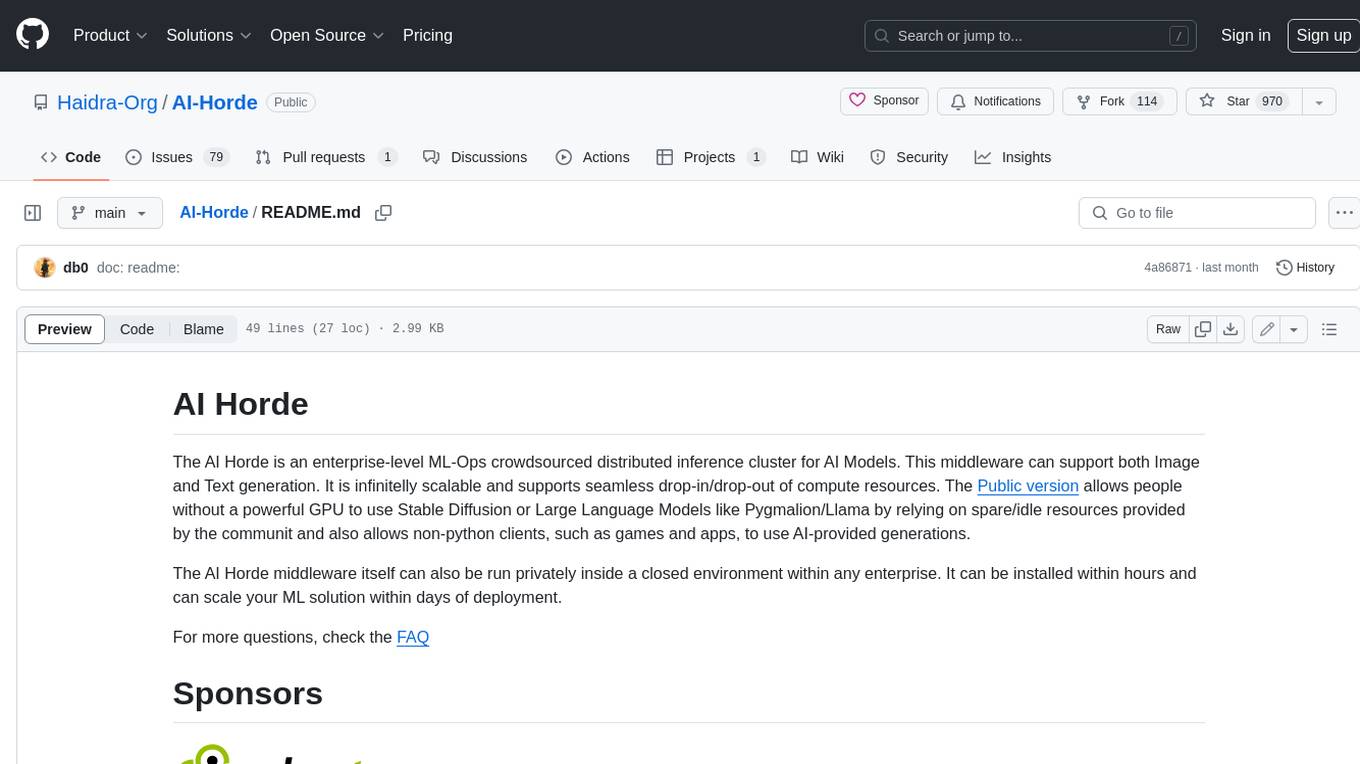
AI-Horde
The AI Horde is an enterprise-level ML-Ops crowdsourced distributed inference cluster for AI Models. This middleware can support both Image and Text generation. It is infinitely scalable and supports seamless drop-in/drop-out of compute resources. The Public version allows people without a powerful GPU to use Stable Diffusion or Large Language Models like Pygmalion/Llama by relying on spare/idle resources provided by the community and also allows non-python clients, such as games and apps, to use AI-provided generations.
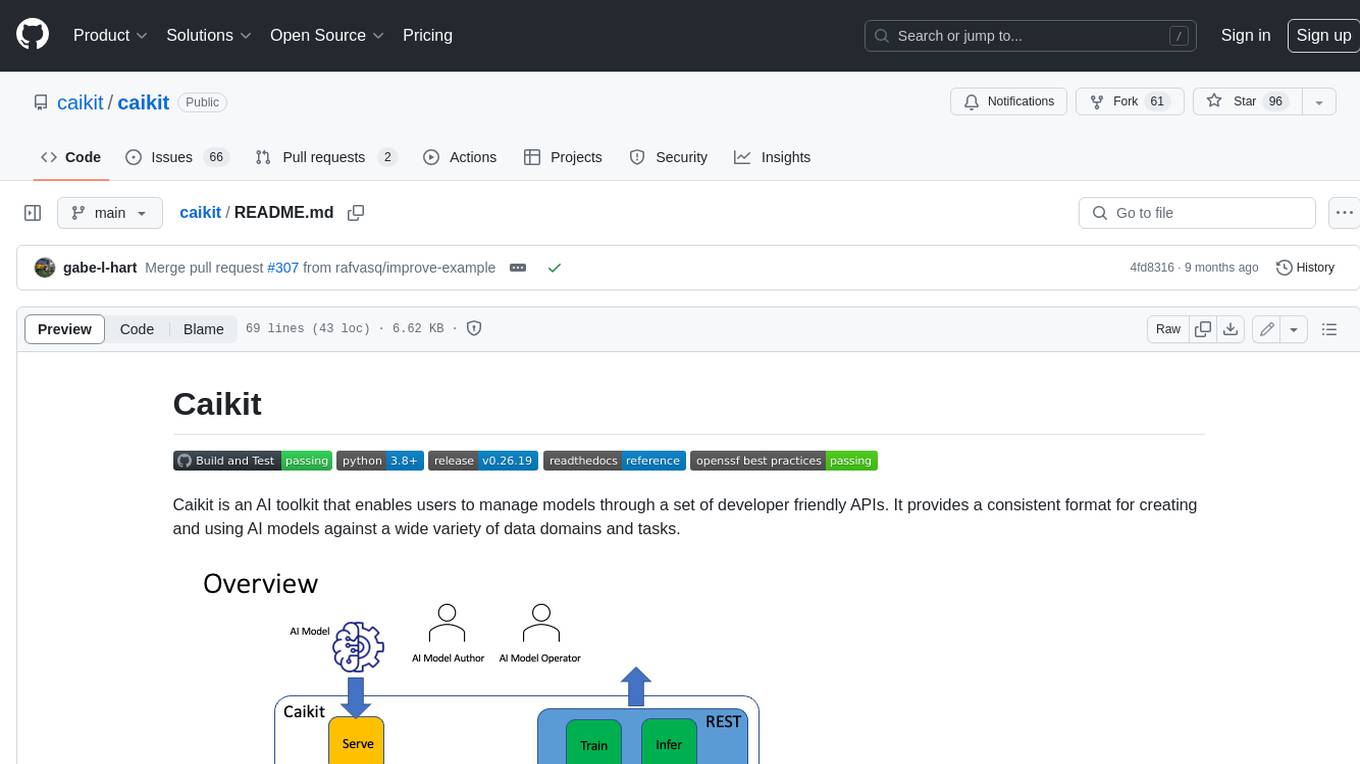
caikit
Caikit is an AI toolkit that enables users to manage models through a set of developer friendly APIs. It provides a consistent format for creating and using AI models against a wide variety of data domains and tasks.
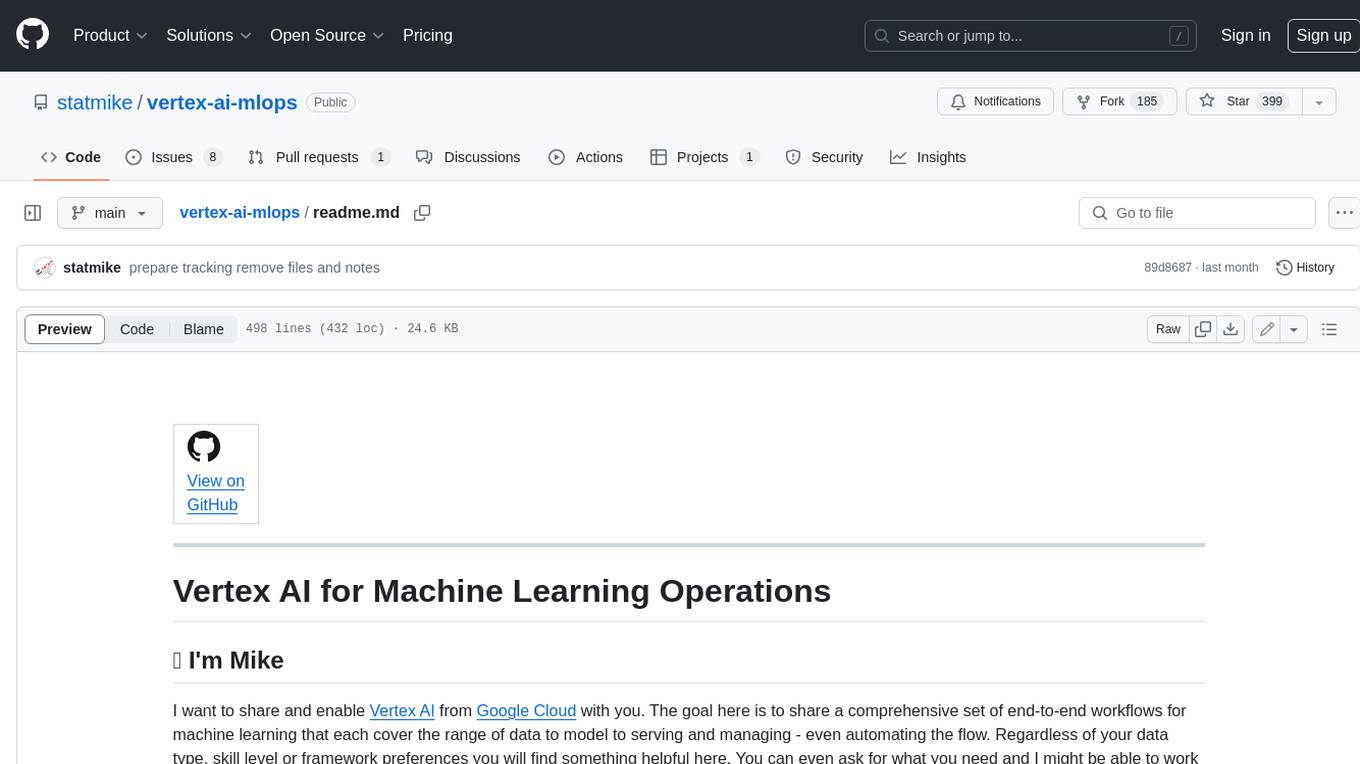
vertex-ai-mlops
Vertex AI is a platform for end-to-end model development. It consist of core components that make the processes of MLOps possible for design patterns of all types.
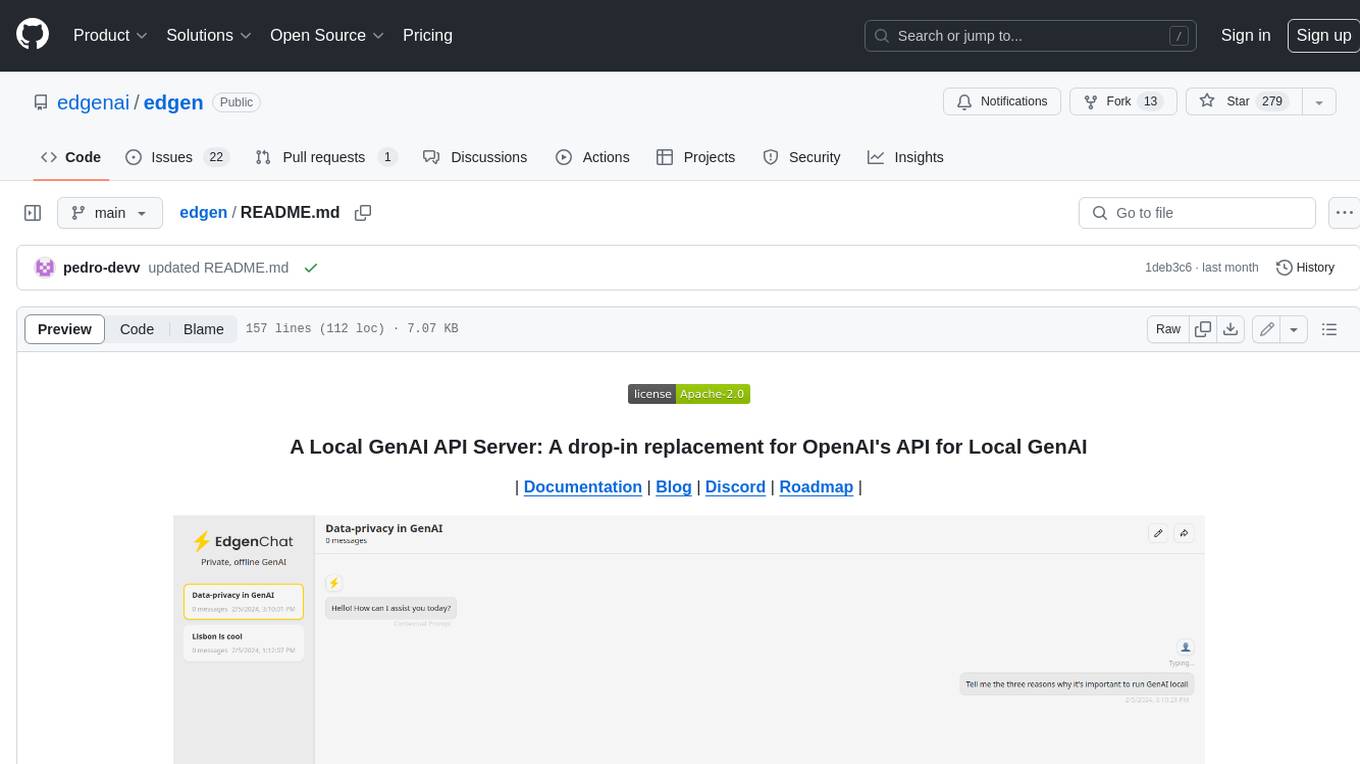
edgen
Edgen is a local GenAI API server that serves as a drop-in replacement for OpenAI's API. It provides multi-endpoint support for chat completions and speech-to-text, is model agnostic, offers optimized inference, and features model caching. Built in Rust, Edgen is natively compiled for Windows, MacOS, and Linux, eliminating the need for Docker. It allows users to utilize GenAI locally on their devices for free and with data privacy. With features like session caching, GPU support, and support for various endpoints, Edgen offers a scalable, reliable, and cost-effective solution for running GenAI applications locally.
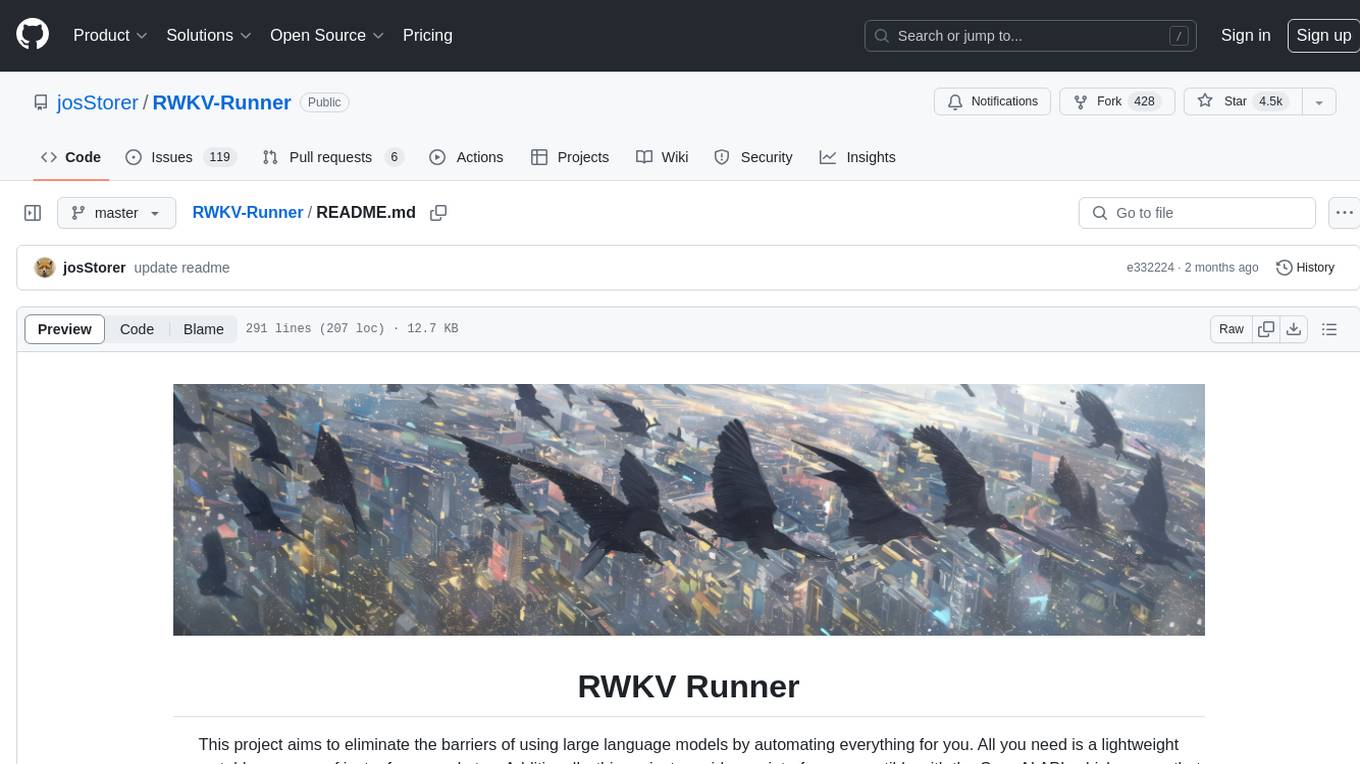
RWKV-Runner
RWKV Runner is a project designed to simplify the usage of large language models by automating various processes. It provides a lightweight executable program and is compatible with the OpenAI API. Users can deploy the backend on a server and use the program as a client. The project offers features like model management, VRAM configurations, user-friendly chat interface, WebUI option, parameter configuration, model conversion tool, download management, LoRA Finetune, and multilingual localization. It can be used for various tasks such as chat, completion, composition, and model inspection.
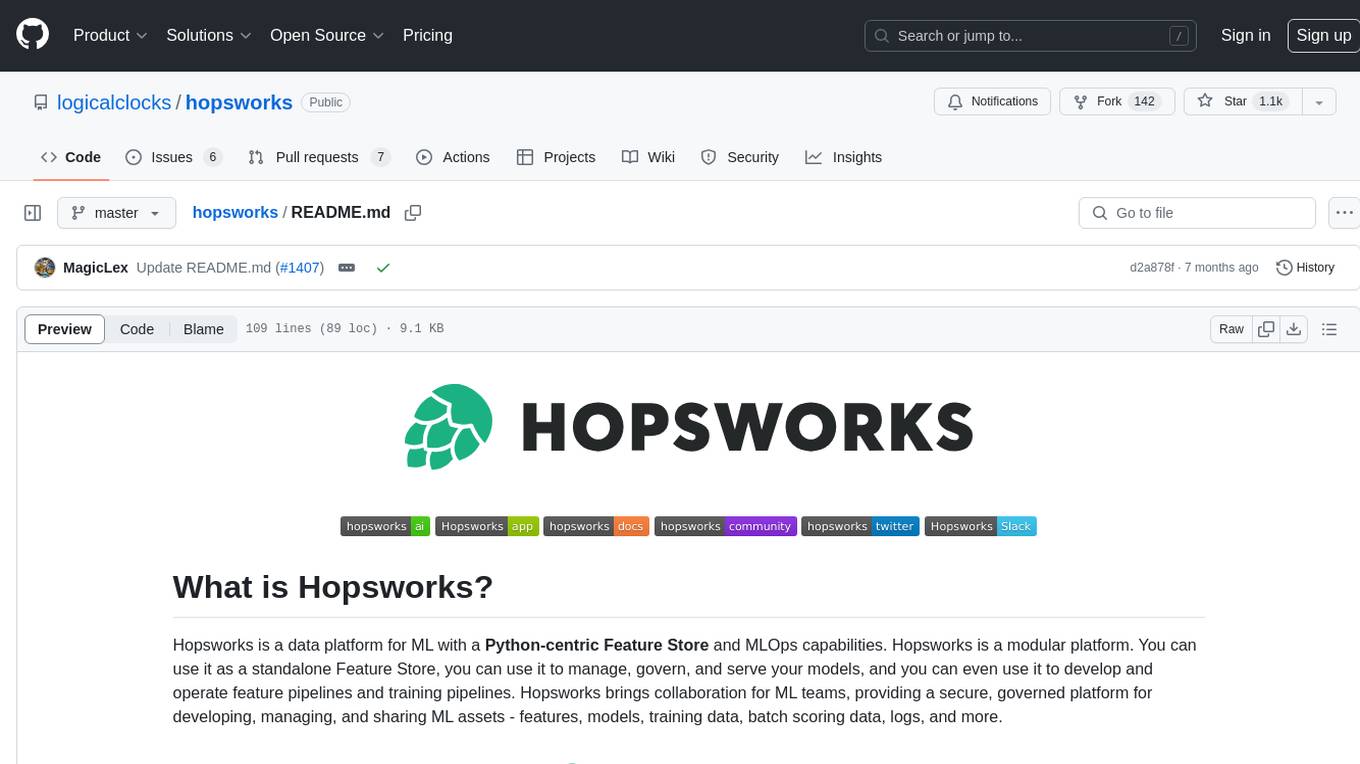
hopsworks
Hopsworks is a data platform for ML with a Python-centric Feature Store and MLOps capabilities. It provides collaboration for ML teams, offering a secure, governed platform for developing, managing, and sharing ML assets. Hopsworks supports project-based multi-tenancy, team collaboration, development tools for Data Science, and is available on any platform including managed cloud services and on-premise installations. The platform enables end-to-end responsibility from raw data to managed features and models, supports versioning, lineage, and provenance, and facilitates the complete MLOps life cycle.
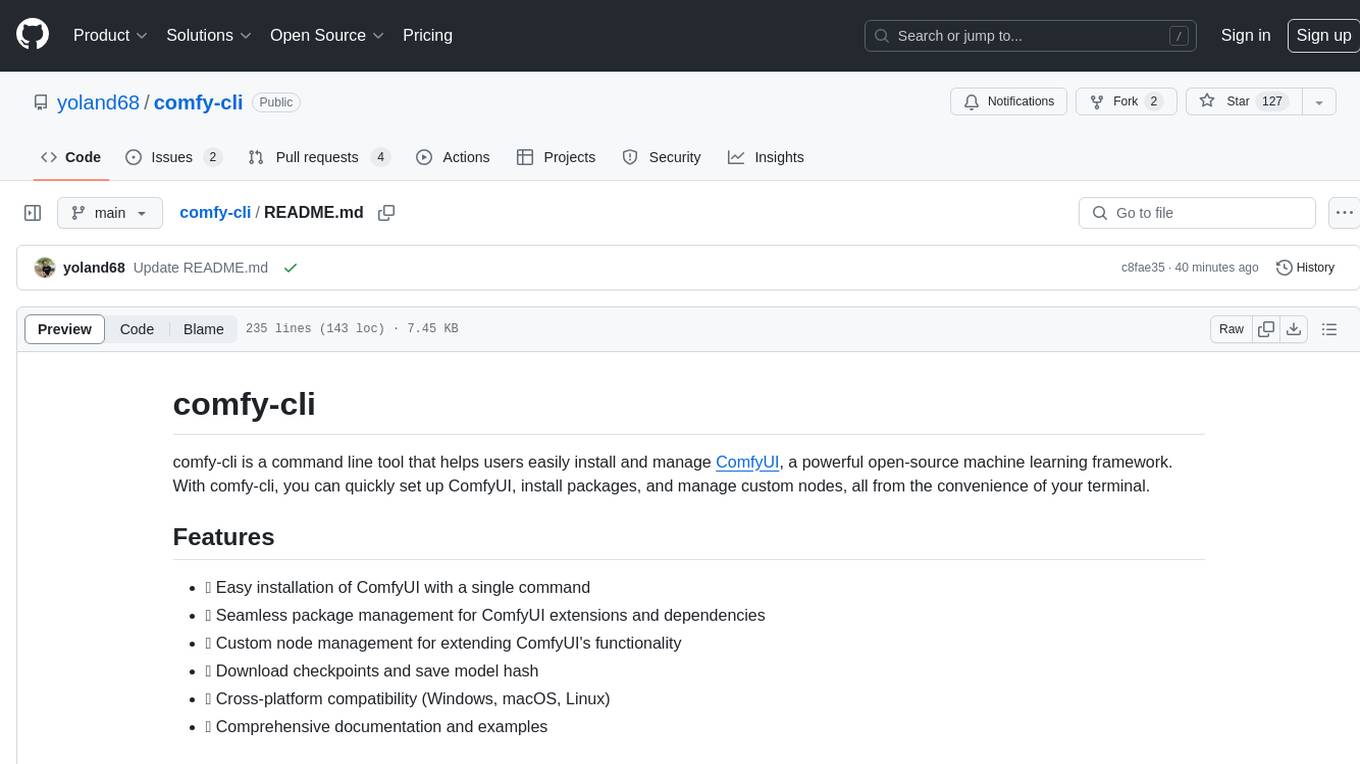
comfy-cli
comfy-cli is a command line tool designed to simplify the installation and management of ComfyUI, an open-source machine learning framework. It allows users to easily set up ComfyUI, install packages, manage custom nodes, download checkpoints, and ensure cross-platform compatibility. The tool provides comprehensive documentation and examples to aid users in utilizing ComfyUI efficiently.
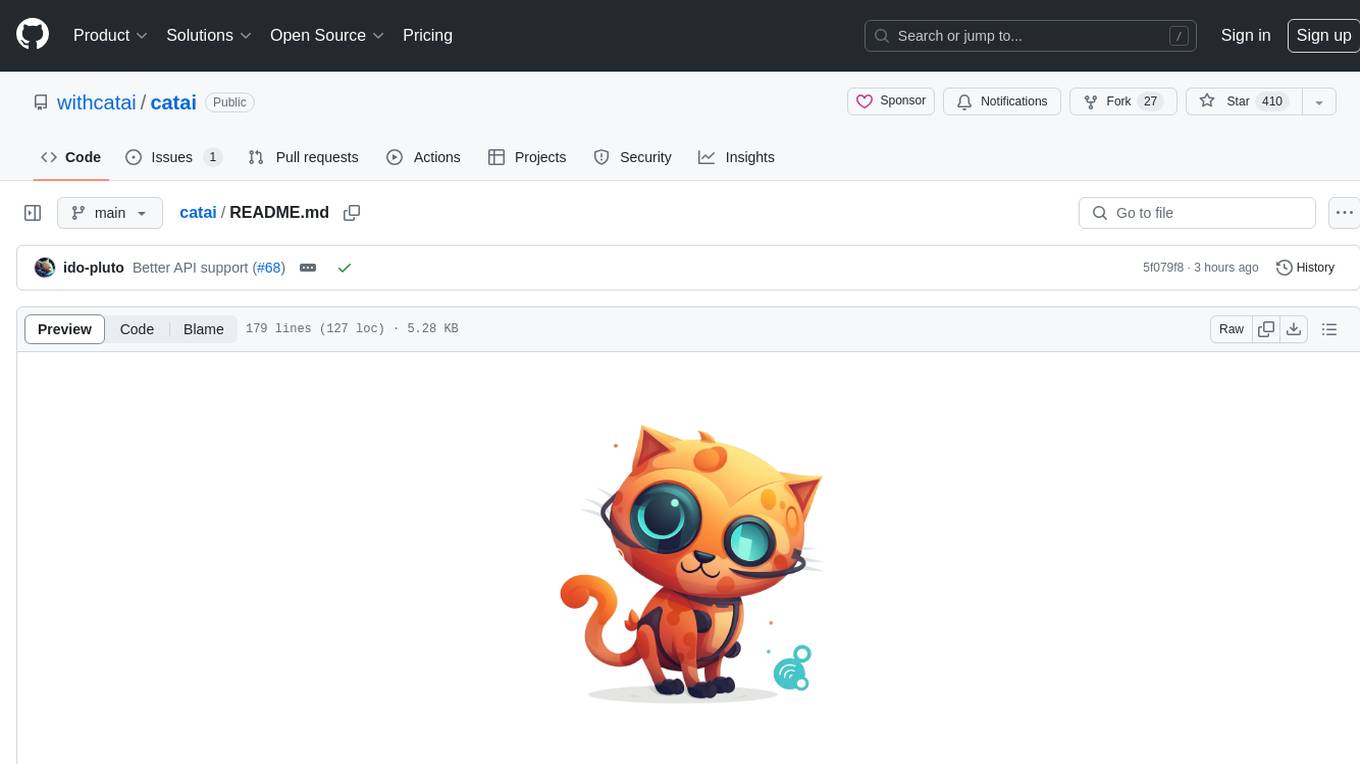
catai
CatAI is a tool that allows users to run GGUF models on their computer with a chat UI. It serves as a local AI assistant inspired by Node-Llama-Cpp and Llama.cpp. The tool provides features such as auto-detecting programming language, showing original messages by clicking on user icons, real-time text streaming, and fast model downloads. Users can interact with the tool through a CLI that supports commands for installing, listing, setting, serving, updating, and removing models. CatAI is cross-platform and supports Windows, Linux, and Mac. It utilizes node-llama-cpp and offers a simple API for asking model questions. Additionally, developers can integrate the tool with node-llama-cpp@beta for model management and chatting. The configuration can be edited via the web UI, and contributions to the project are welcome. The tool is licensed under Llama.cpp's license.
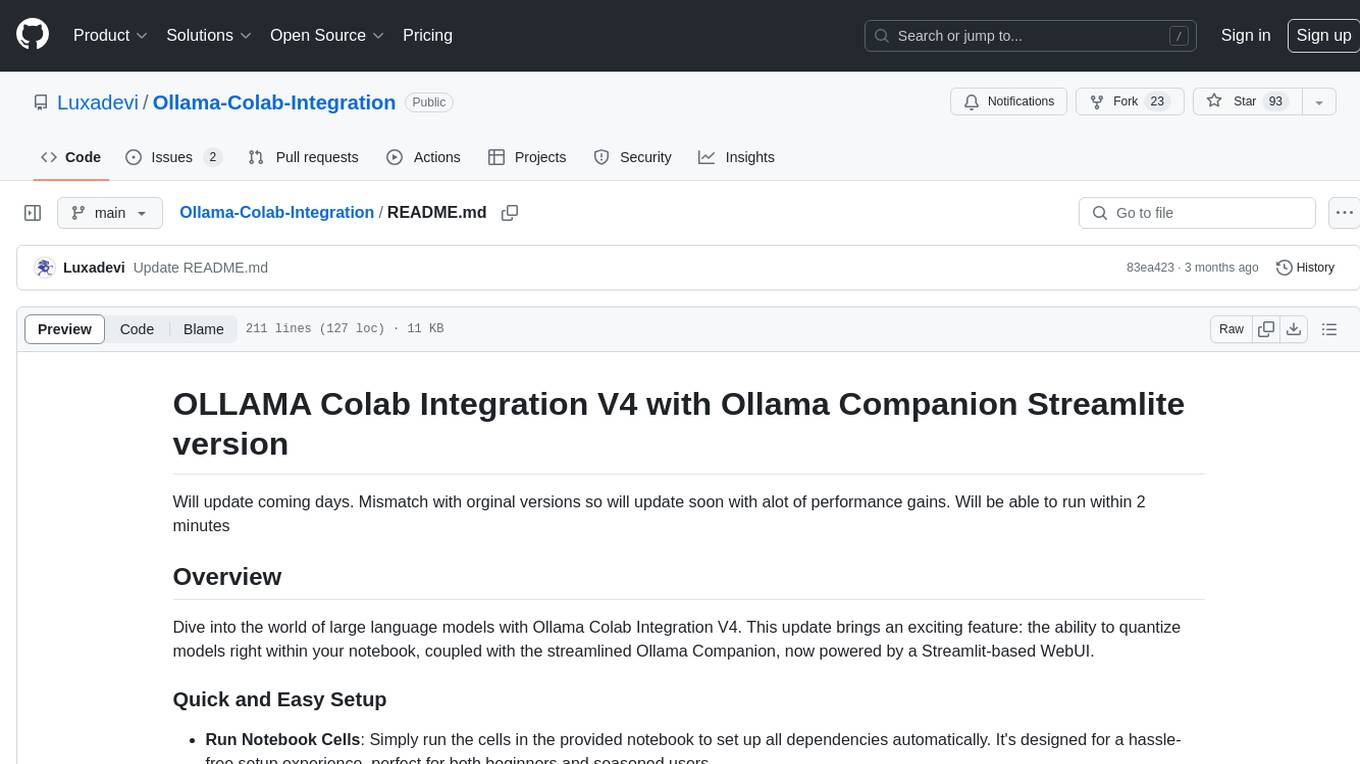
Ollama-Colab-Integration
Ollama Colab Integration V4 is a tool designed to enhance the interaction and management of large language models. It allows users to quantize models within their notebook environment, access a variety of models through a user-friendly interface, and manage public endpoints efficiently. The tool also provides features like LiteLLM proxy control, model insights, and customizable model file templating. Users can troubleshoot model loading issues, CPU fallback strategies, and manage VRAM and RAM effectively. Additionally, the tool offers functionalities for downloading model files from Hugging Face, model conversion with high precision, model quantization using Q and Kquants, and securely uploading converted models to Hugging Face.
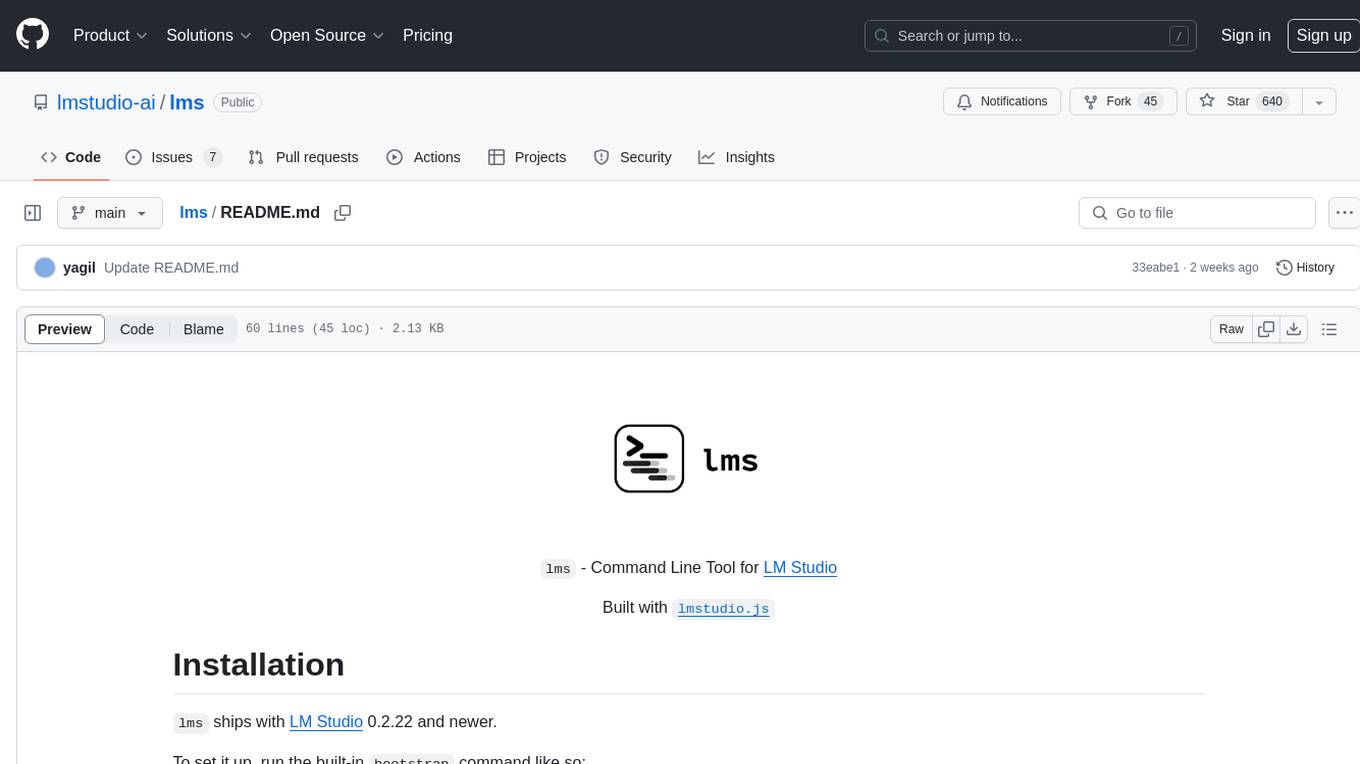
lms
The `lms` Command Line Tool for LM Studio is a powerful tool built with `lmstudio.js` that allows users to interact with LM Studio functionalities through the command line interface. It provides a wide range of commands for managing models, starting and stopping servers, creating projects, and streaming logs. Users can easily bootstrap the tool and access detailed information about each subcommand. The tool is designed to enhance the user experience and streamline workflows when working with LM Studio.
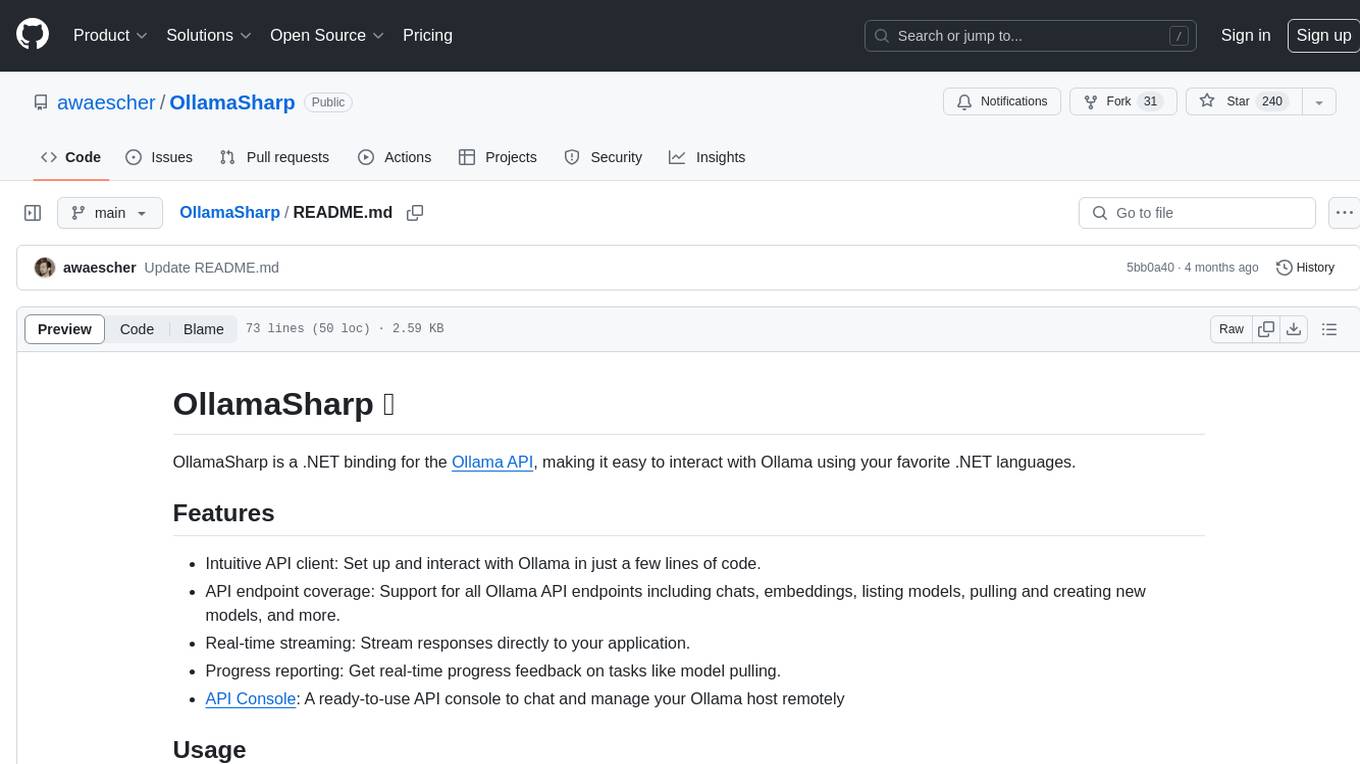
OllamaSharp
OllamaSharp is a .NET binding for the Ollama API, providing an intuitive API client to interact with Ollama. It offers support for all Ollama API endpoints, real-time streaming, progress reporting, and an API console for remote management. Users can easily set up the client, list models, pull models with progress feedback, stream completions, and build interactive chats. The project includes a demo console for exploring and managing the Ollama host.
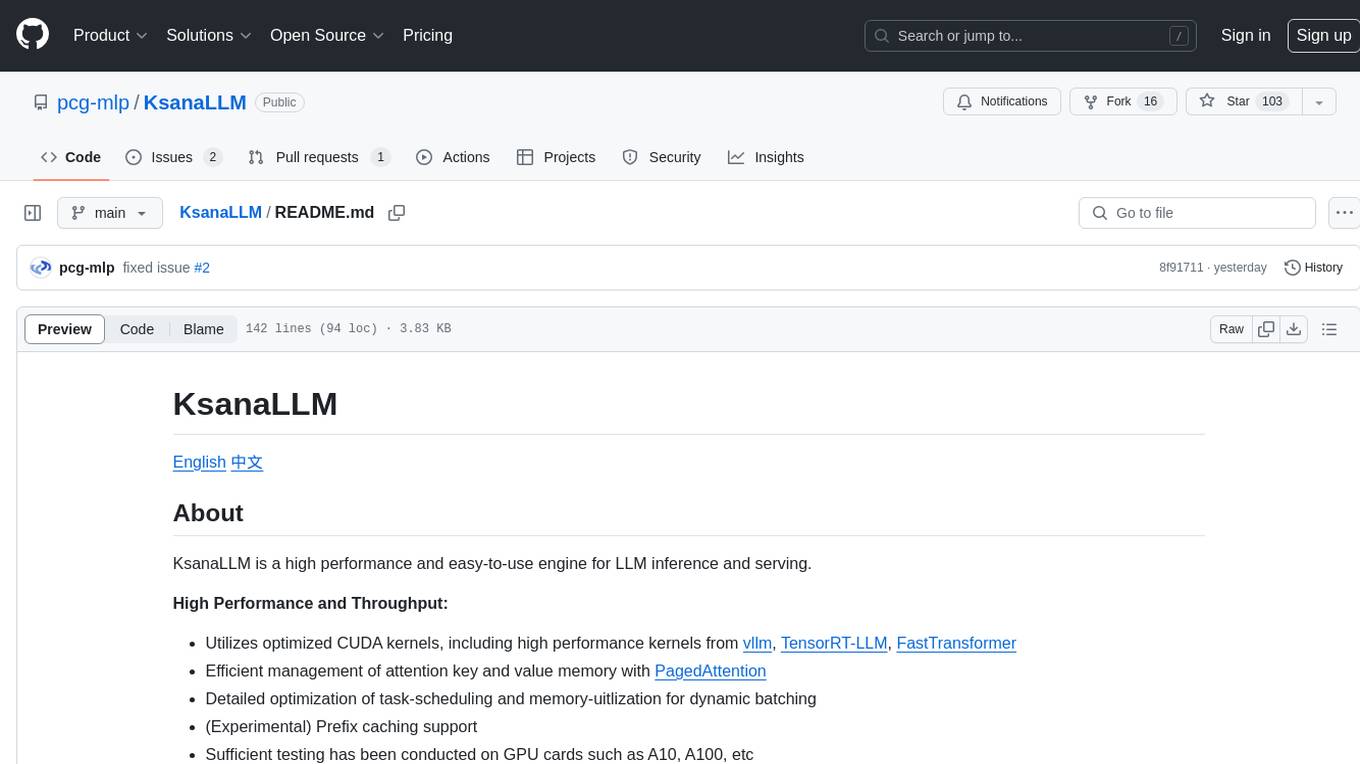
KsanaLLM
KsanaLLM is a high-performance engine for LLM inference and serving. It utilizes optimized CUDA kernels for high performance, efficient memory management, and detailed optimization for dynamic batching. The tool offers flexibility with seamless integration with popular Hugging Face models, support for multiple weight formats, and high-throughput serving with various decoding algorithms. It enables multi-GPU tensor parallelism, streaming outputs, and an OpenAI-compatible API server. KsanaLLM supports NVIDIA GPUs and Huawei Ascend NPU, and seamlessly integrates with verified Hugging Face models like LLaMA, Baichuan, and Qwen. Users can create a docker container, clone the source code, compile for Nvidia or Huawei Ascend NPU, run the tool, and distribute it as a wheel package. Optional features include a model weight map JSON file for models with different weight names.
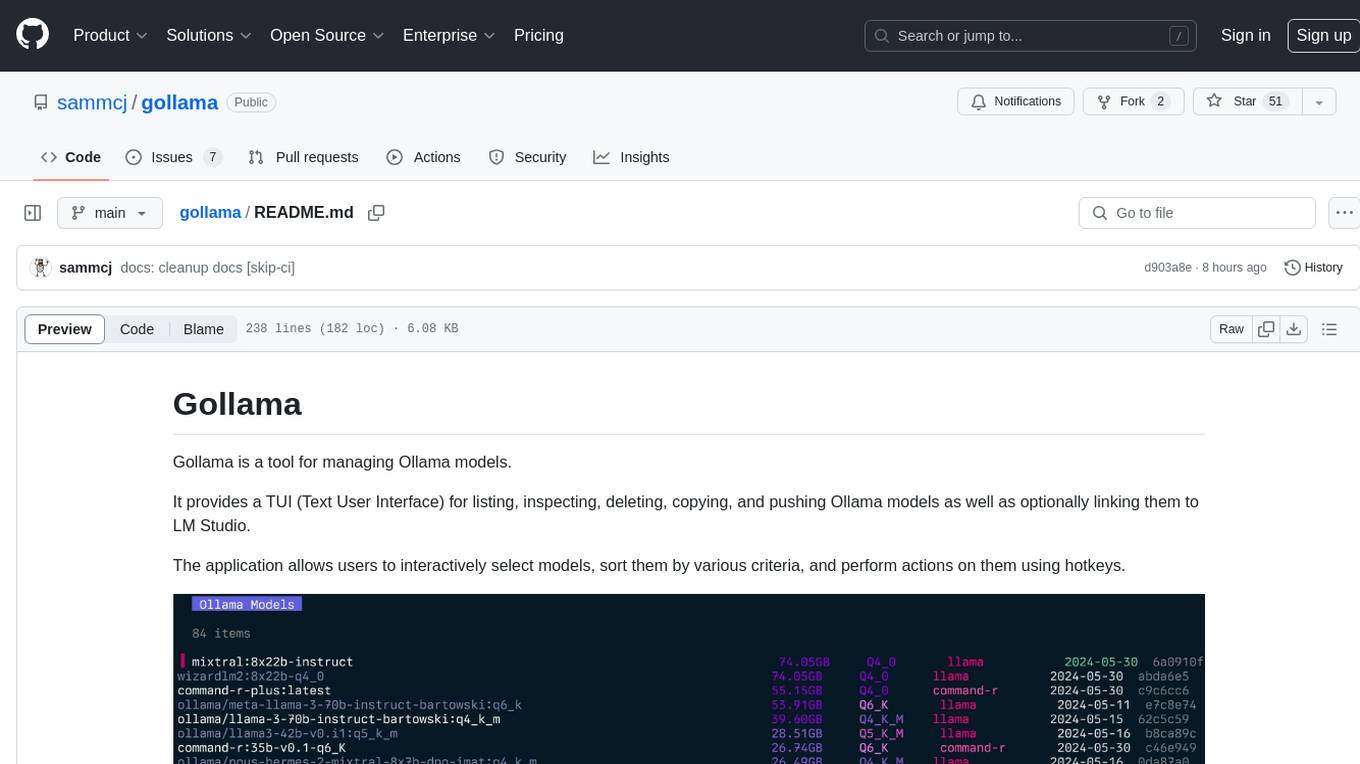
gollama
Gollama is a tool designed for managing Ollama models through a Text User Interface (TUI). Users can list, inspect, delete, copy, and push Ollama models, as well as link them to LM Studio. The application offers interactive model selection, sorting by various criteria, and actions using hotkeys. It provides features like sorting and filtering capabilities, displaying model metadata, model linking, copying, pushing, and more. Gollama aims to be user-friendly and useful for managing models, especially for cleaning up old models.
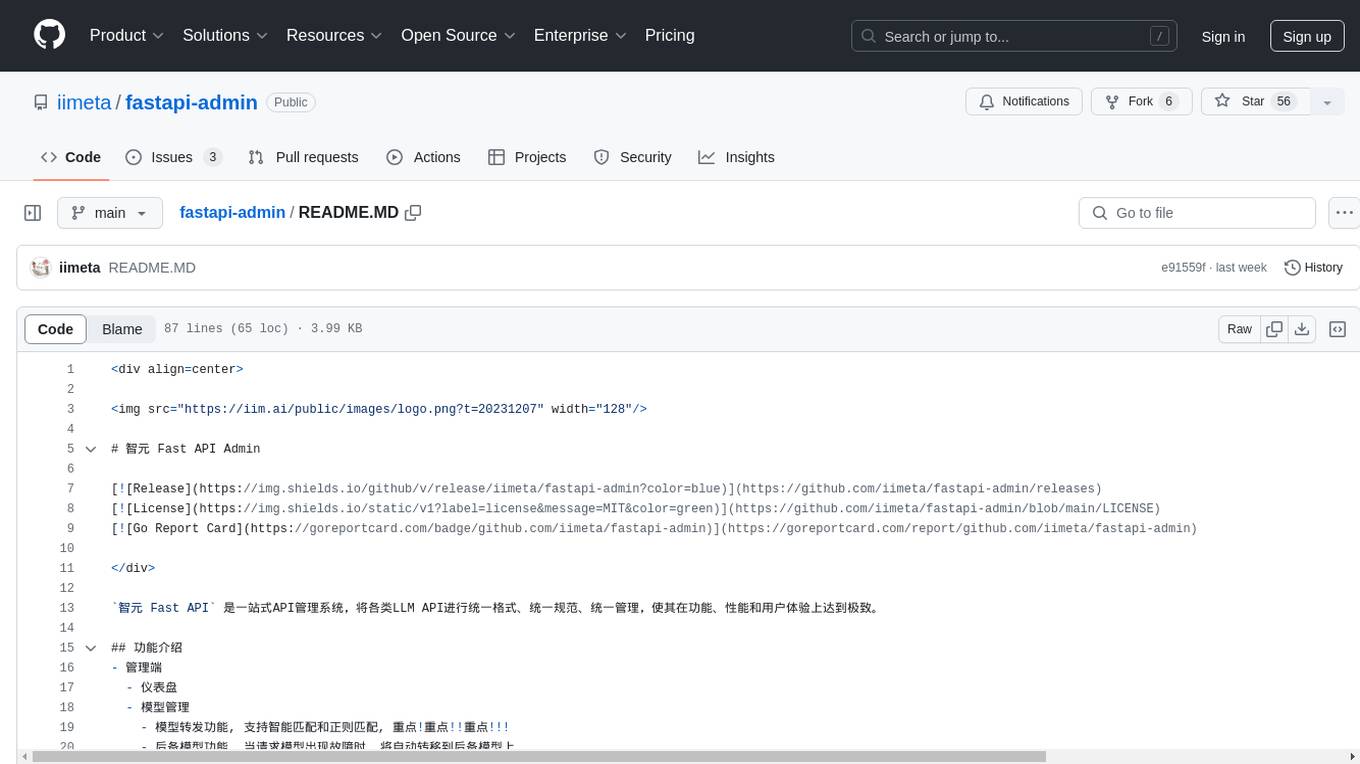
fastapi-admin
智元 Fast API is a one-stop API management system that unifies various LLM APIs in terms of format, standards, and management to achieve the ultimate in functionality, performance, and user experience. It includes features such as model management with intelligent and regex matching, backup model functionality, key management, proxy management, company management, user management, and chat management for both admin and user ends. The project supports cluster deployment, multi-site deployment, and cross-region deployment. It also provides a public API site for registration with a contact to the author for a 10 million quota. The tool offers a comprehensive dashboard, model management, application management, key management, and chat management functionalities for users.
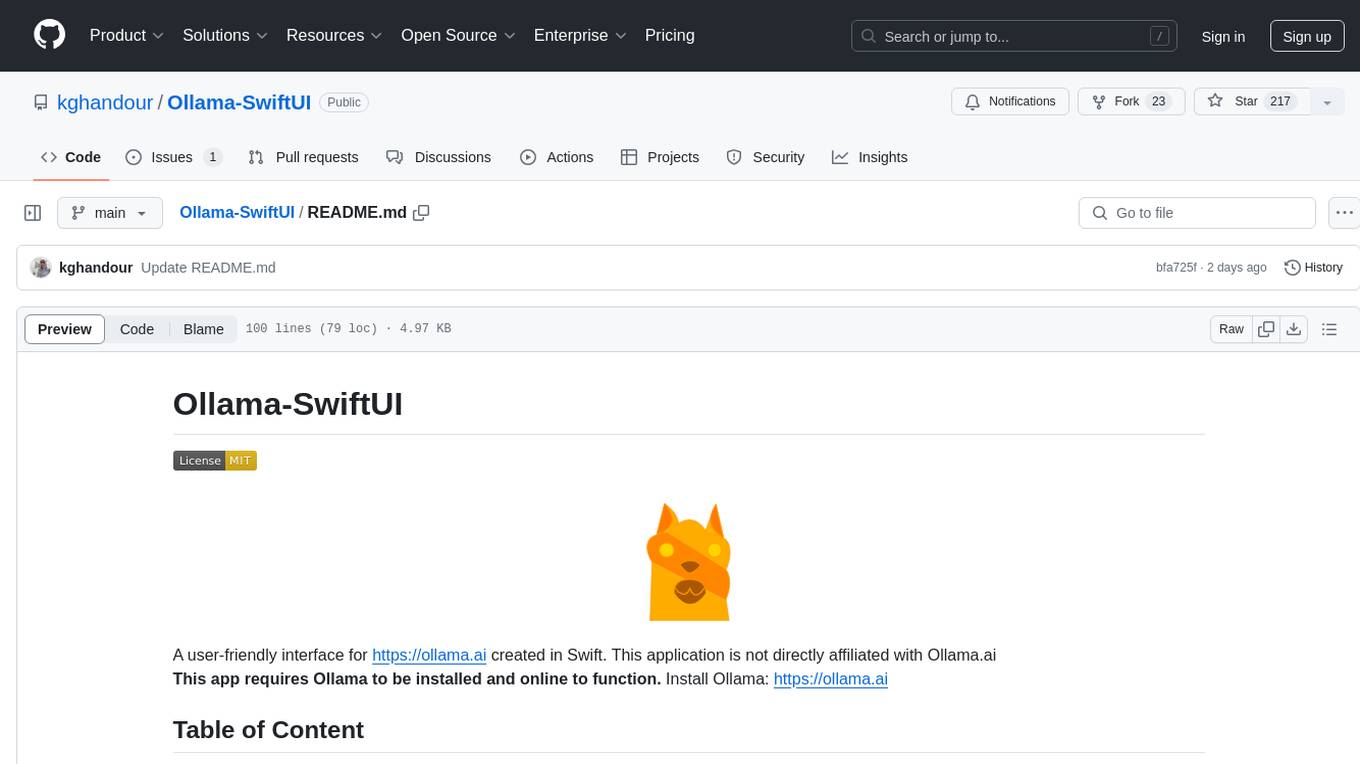
Ollama-SwiftUI
Ollama-SwiftUI is a user-friendly interface for Ollama.ai created in Swift. It allows seamless chatting with local Large Language Models on Mac. Users can change models mid-conversation, restart conversations, send system prompts, and use multimodal models with image + text. The app supports managing models, including downloading, deleting, and duplicating them. It offers light and dark mode, multiple conversation tabs, and a localized interface in English and Arabic.
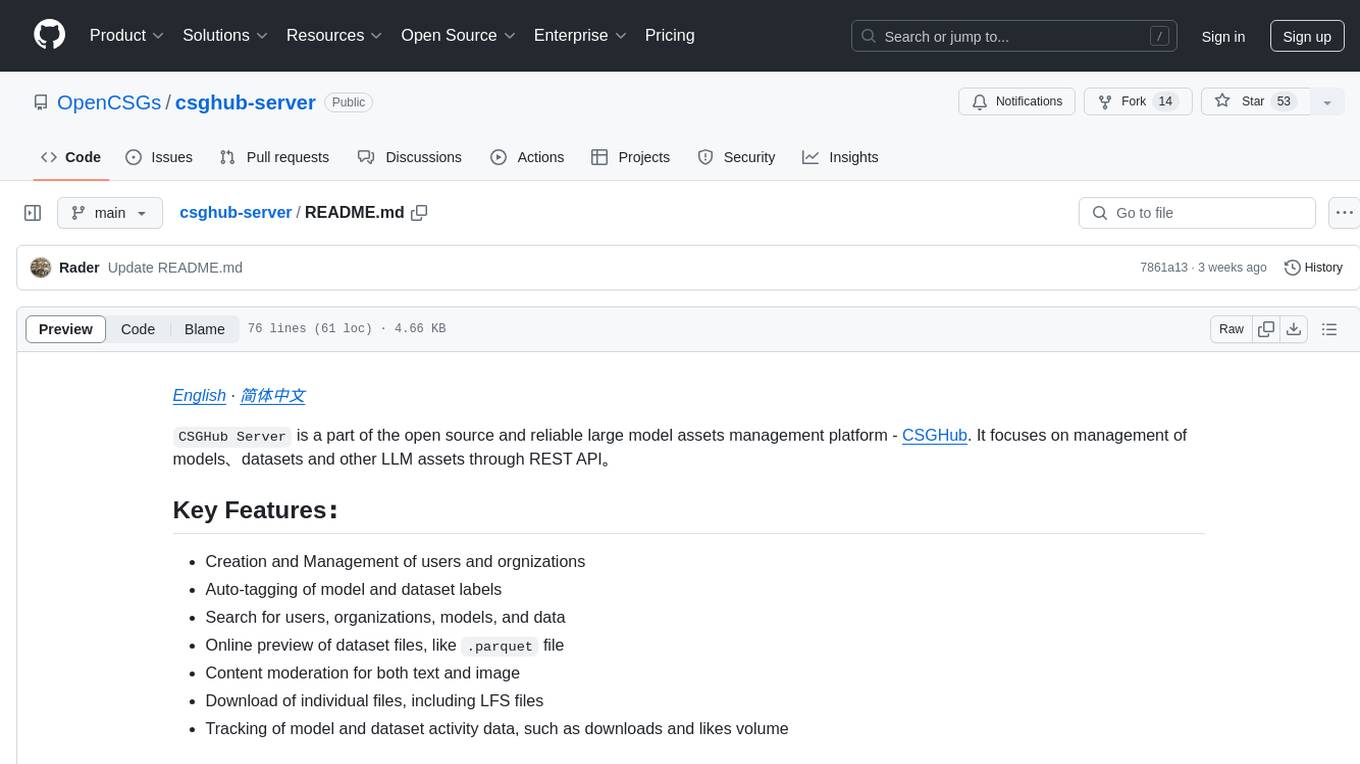
csghub-server
CSGHub Server is a part of the open source and reliable large model assets management platform - CSGHub. It focuses on management of models, datasets, and other LLM assets through REST API. Key features include creation and management of users and organizations, auto-tagging of model and dataset labels, search functionality, online preview of dataset files, content moderation for text and image, download of individual files, tracking of model and dataset activity data. The tool is extensible and customizable, supporting different git servers, flexible LFS storage system configuration, and content moderation options. The roadmap includes support for more Git servers, Git LFS, dataset online viewer, model/dataset auto-tag, S3 protocol support, model format conversion, and model one-click deploy. The project is licensed under Apache 2.0 and welcomes contributions.
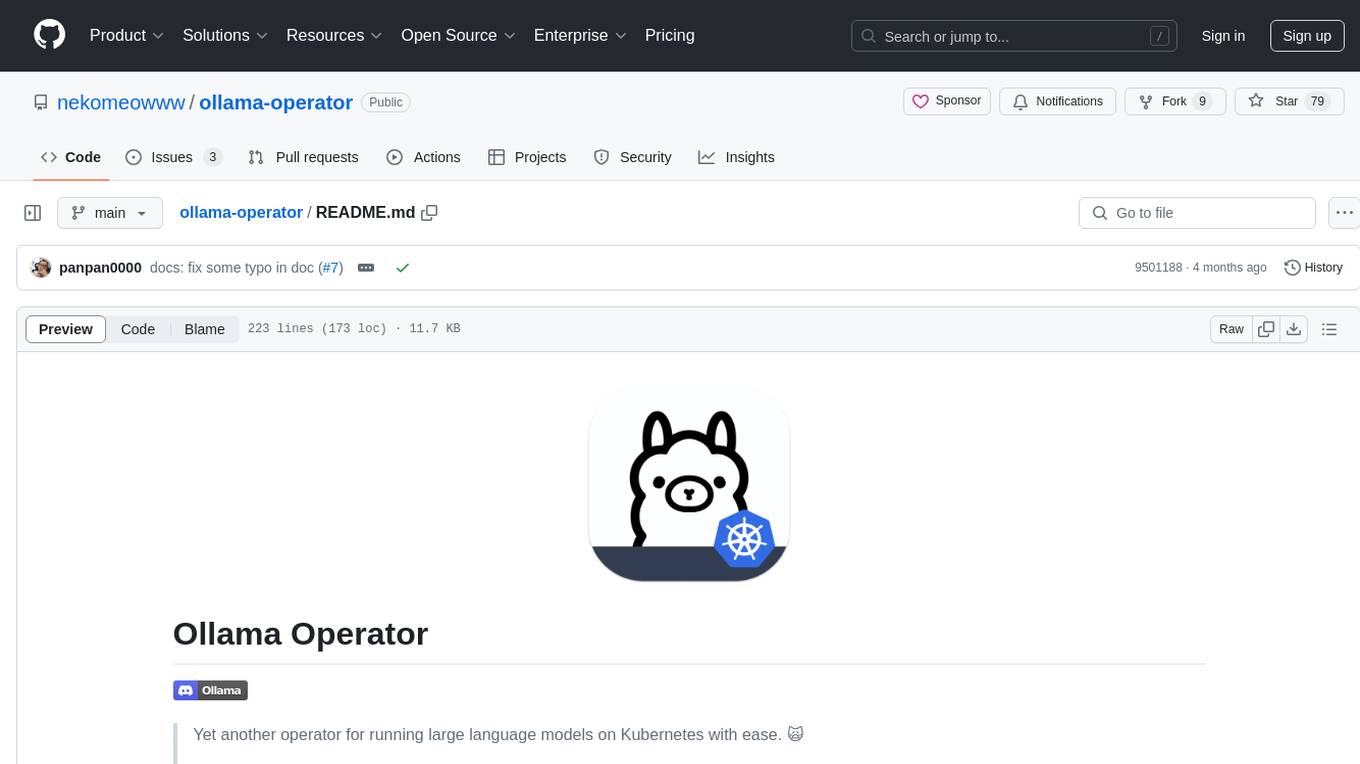
ollama-operator
Ollama Operator is a Kubernetes operator designed to facilitate running large language models on Kubernetes clusters. It simplifies the process of deploying and managing multiple models on the same cluster, providing an easy-to-use interface for users. With support for various Kubernetes environments and seamless integration with Ollama models, APIs, and CLI, Ollama Operator streamlines the deployment and management of language models. By leveraging the capabilities of lama.cpp, Ollama Operator eliminates the need to worry about Python environments and CUDA drivers, making it a reliable tool for running large language models on Kubernetes.
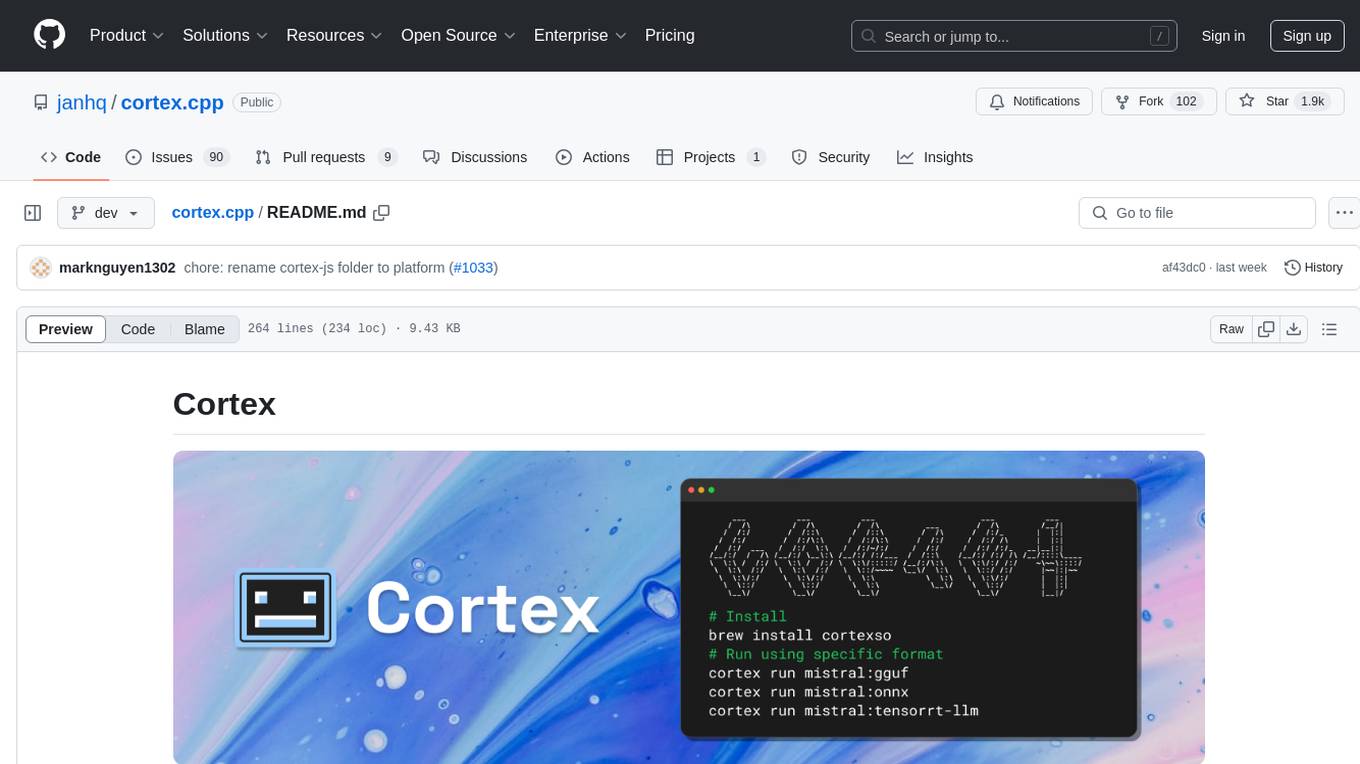
cortex.cpp
Cortex is a C++ AI engine with a Docker-like command-line interface and client libraries. It supports running AI models using ONNX, TensorRT-LLM, and llama.cpp engines. Cortex can function as a standalone server or be integrated as a library. The tool provides support for various engines and models, allowing users to easily deploy and interact with AI models. It offers a range of CLI commands for managing models, embeddings, and engines, as well as a REST API for interacting with models. Cortex is designed to simplify the deployment and usage of AI models in C++ applications.
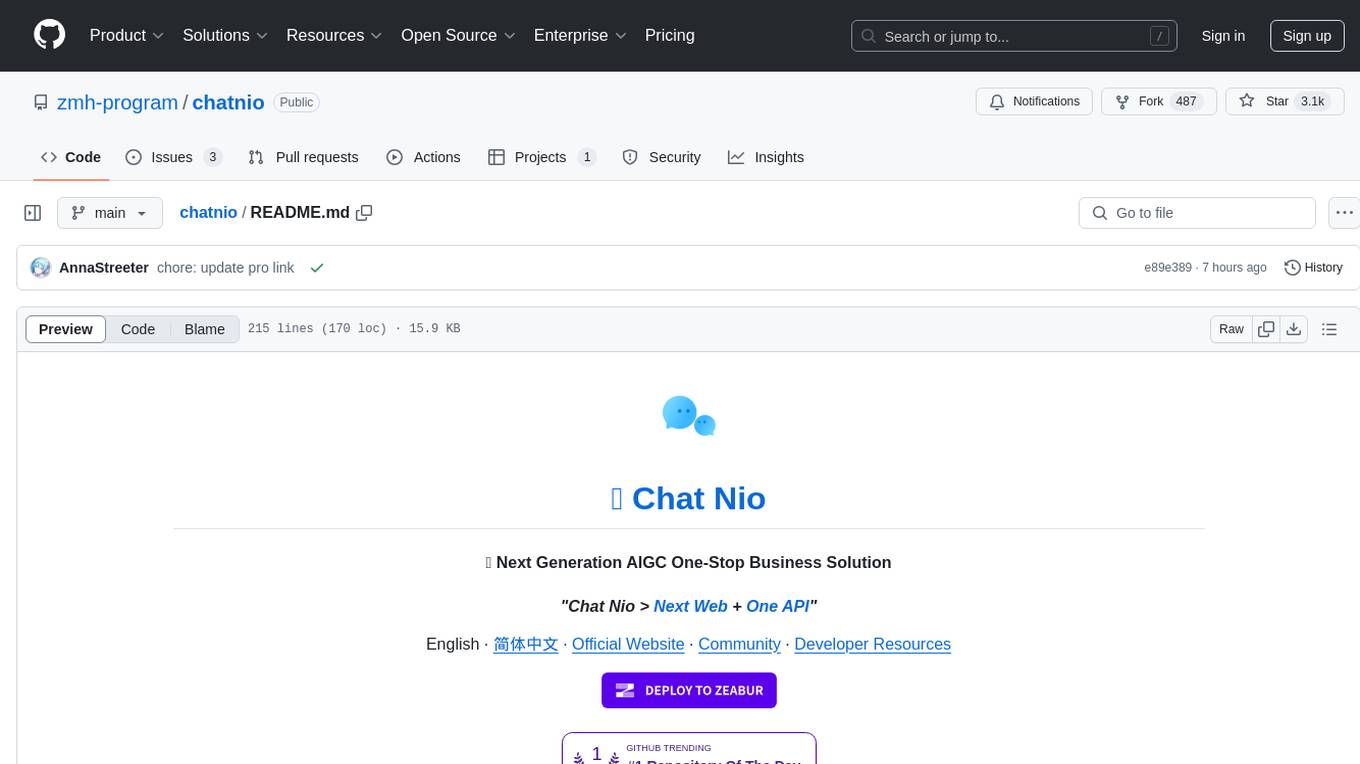
chatnio
Chat Nio is a next-generation AIGC one-stop business solution that combines the advantages of frontend-oriented lightweight deployment projects with powerful API distribution systems. It offers rich model support, beautiful UI design, complete Markdown support, multi-theme support, internationalization support, text-to-image support, powerful conversation sync, model market & preset system, rich file parsing, full model internet search, Progressive Web App (PWA) support, comprehensive backend management, multiple billing methods, innovative model caching, and additional features. The project aims to address limitations in conversation synchronization, billing, file parsing, conversation URL sharing, channel management, and API call support found in existing AIGC commercial sites, while also providing a user-friendly interface design and C-end features.
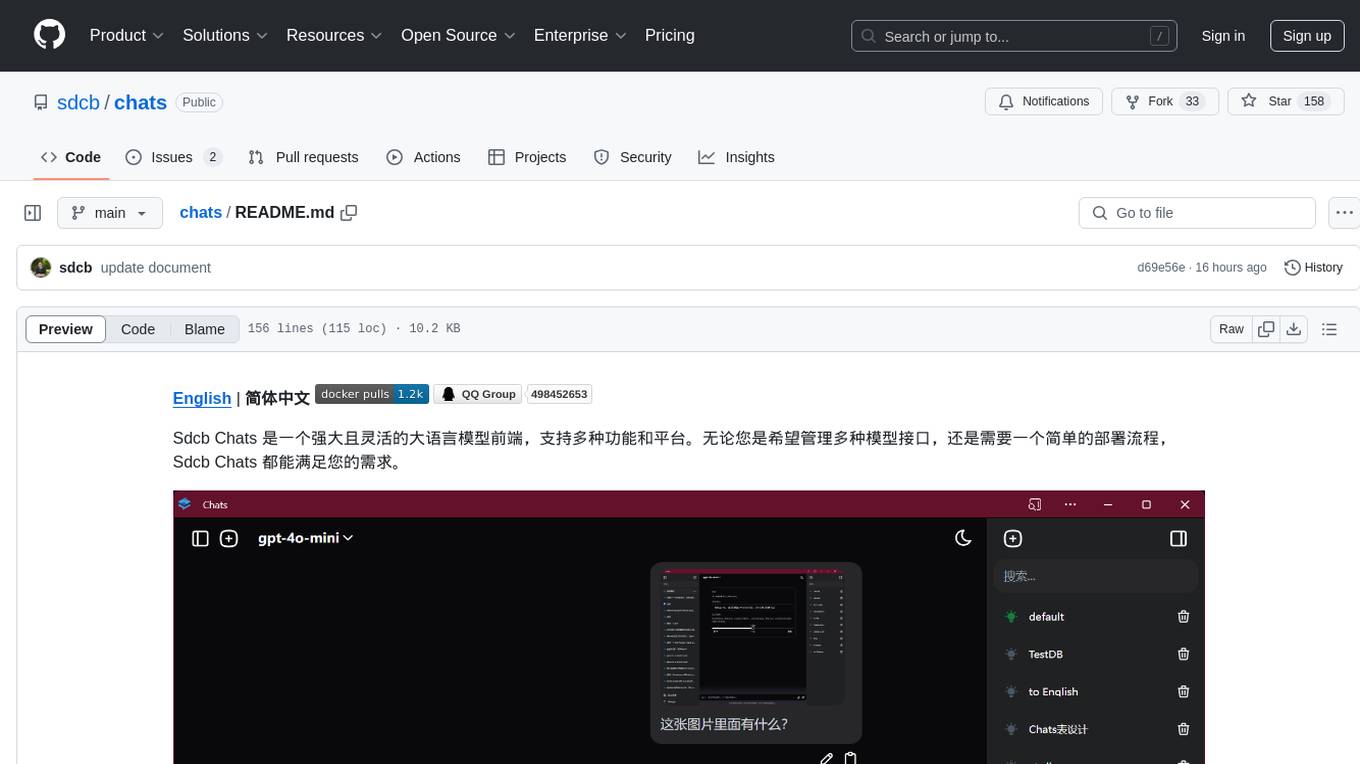
chats
Sdcb Chats is a powerful and flexible frontend for large language models, supporting multiple functions and platforms. Whether you want to manage multiple model interfaces or need a simple deployment process, Sdcb Chats can meet your needs. It supports dynamic management of multiple large language model interfaces, integrates visual models to enhance user interaction experience, provides fine-grained user permission settings for security, real-time tracking and management of user account balances, easy addition, deletion, and configuration of models, transparently forwards user chat requests based on the OpenAI protocol, supports multiple databases including SQLite, SQL Server, and PostgreSQL, compatible with various file services such as local files, AWS S3, Minio, Aliyun OSS, Azure Blob Storage, and supports multiple login methods including Keycloak SSO and phone SMS verification.
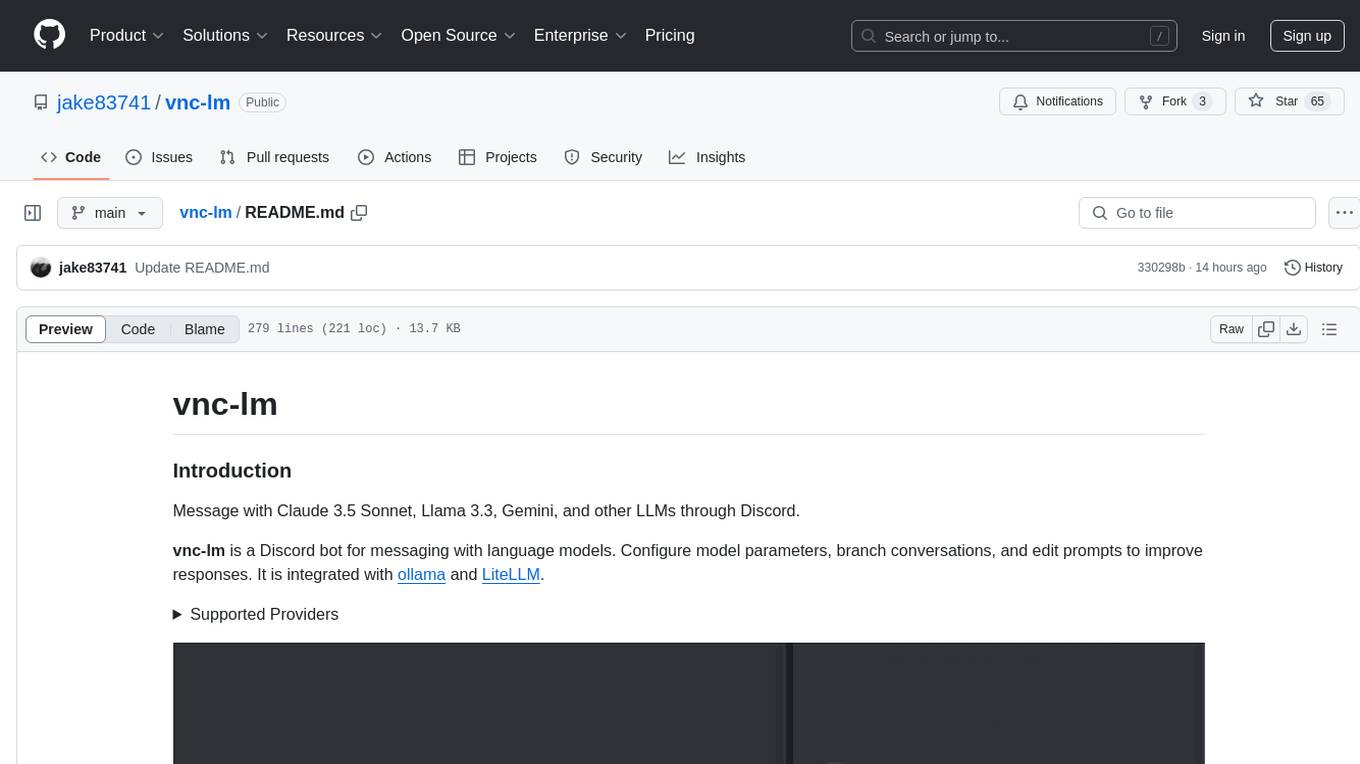
vnc-lm
vnc-lm is a Discord bot designed for messaging with language models. Users can configure model parameters, branch conversations, and edit prompts to enhance responses. The bot supports various providers like OpenAI, Huggingface, and Cloudflare Workers AI. It integrates with ollama and LiteLLM, allowing users to access a wide range of language model APIs through a single interface. Users can manage models, switch between models, split long messages, and create conversation branches. LiteLLM integration enables support for OpenAI-compatible APIs and local LLM services. The bot requires Docker for installation and can be configured through environment variables. Troubleshooting tips are provided for common issues like context window problems, Discord API errors, and LiteLLM issues.
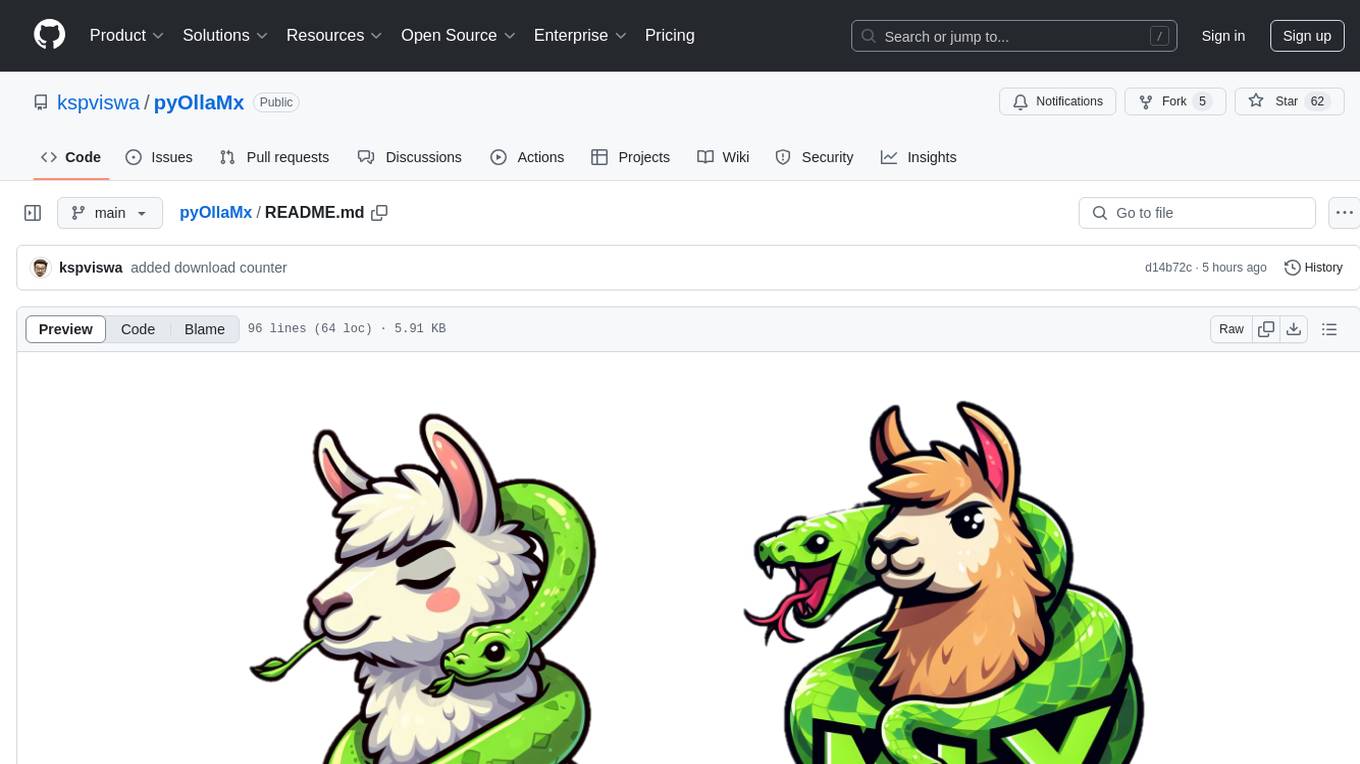
pyOllaMx
PyOllaMx is a chatbot application that serves as a gateway to both Ollama and Apple MlX models. It allows users to chat with these models through a native MacOS interface, eliminating the need for external applications like Bing or Chat-GPT. The tool provides a versatile and user-friendly experience for interacting with different models, enabling tasks such as model discovery, model management, chatting, and web searching. PyOllaMx simplifies the workflow for users who want to leverage Ollama and MlX models on their Mac devices.
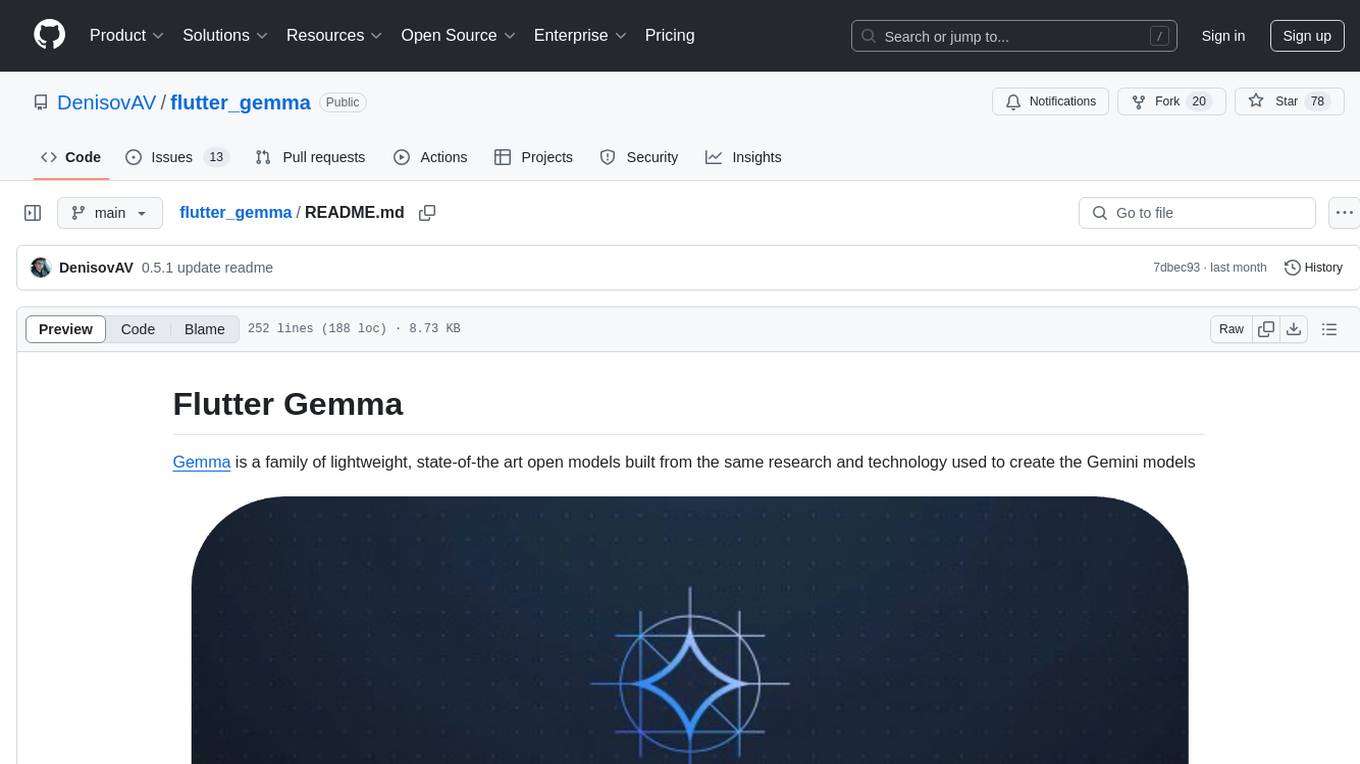
flutter_gemma
Flutter Gemma is a family of lightweight, state-of-the art open models that bring the power of Google's Gemma language models directly to Flutter applications. It allows for local execution on user devices, supports both iOS and Android platforms, and offers LoRA support for tailored AI behavior. The tool provides a simple interface for integrating Gemma models into Flutter projects, enabling advanced AI capabilities without relying on external servers. Users can easily download pre-trained Gemma models, fine-tune them for specific use cases, and customize behavior using LoRA weights. The tool supports model and LoRA weight management, model initialization, response generation, and chat scenarios, with considerations for model size, LoRA weights, and production app deployment.
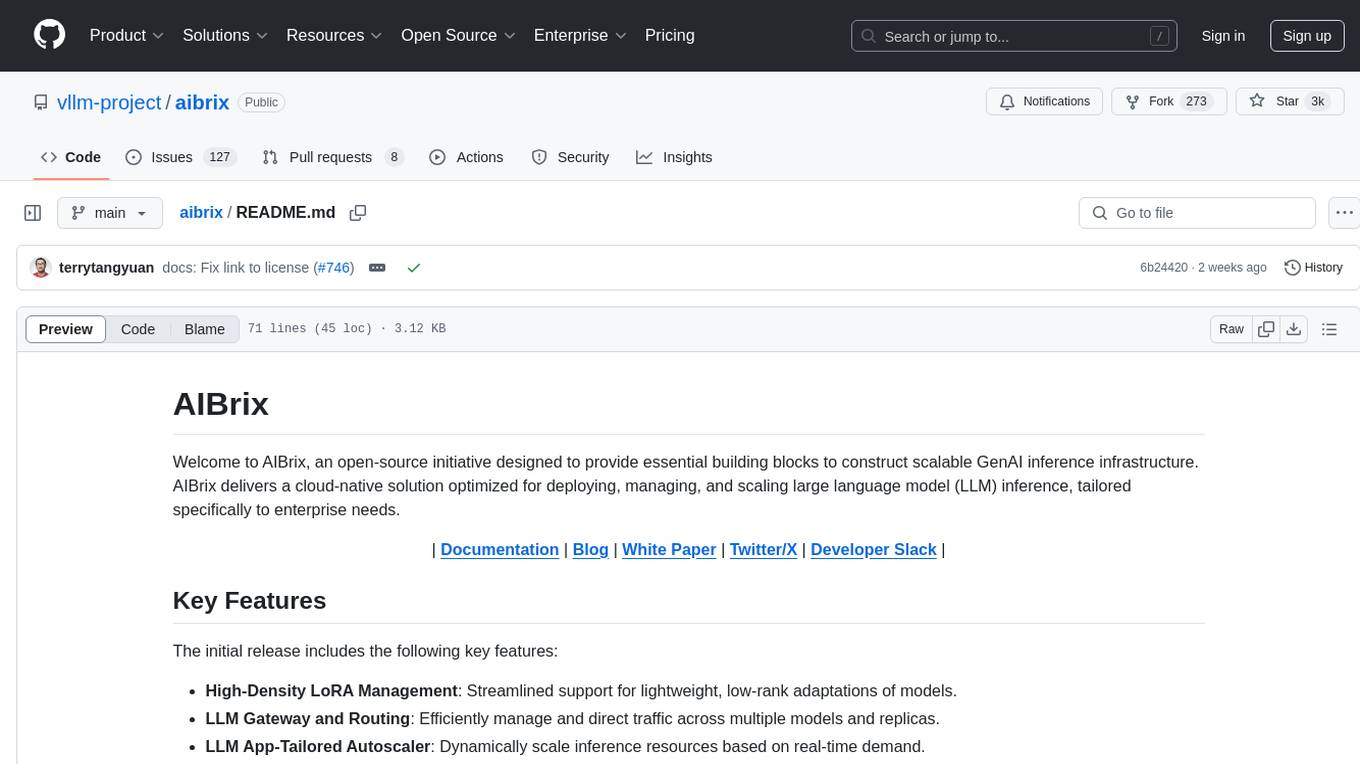
aibrix
AIBrix is an open-source initiative providing essential building blocks for scalable GenAI inference infrastructure. It delivers a cloud-native solution optimized for deploying, managing, and scaling large language model (LLM) inference, tailored to enterprise needs. Key features include High-Density LoRA Management, LLM Gateway and Routing, LLM App-Tailored Autoscaler, Unified AI Runtime, Distributed Inference, Distributed KV Cache, Cost-efficient Heterogeneous Serving, and GPU Hardware Failure Detection.
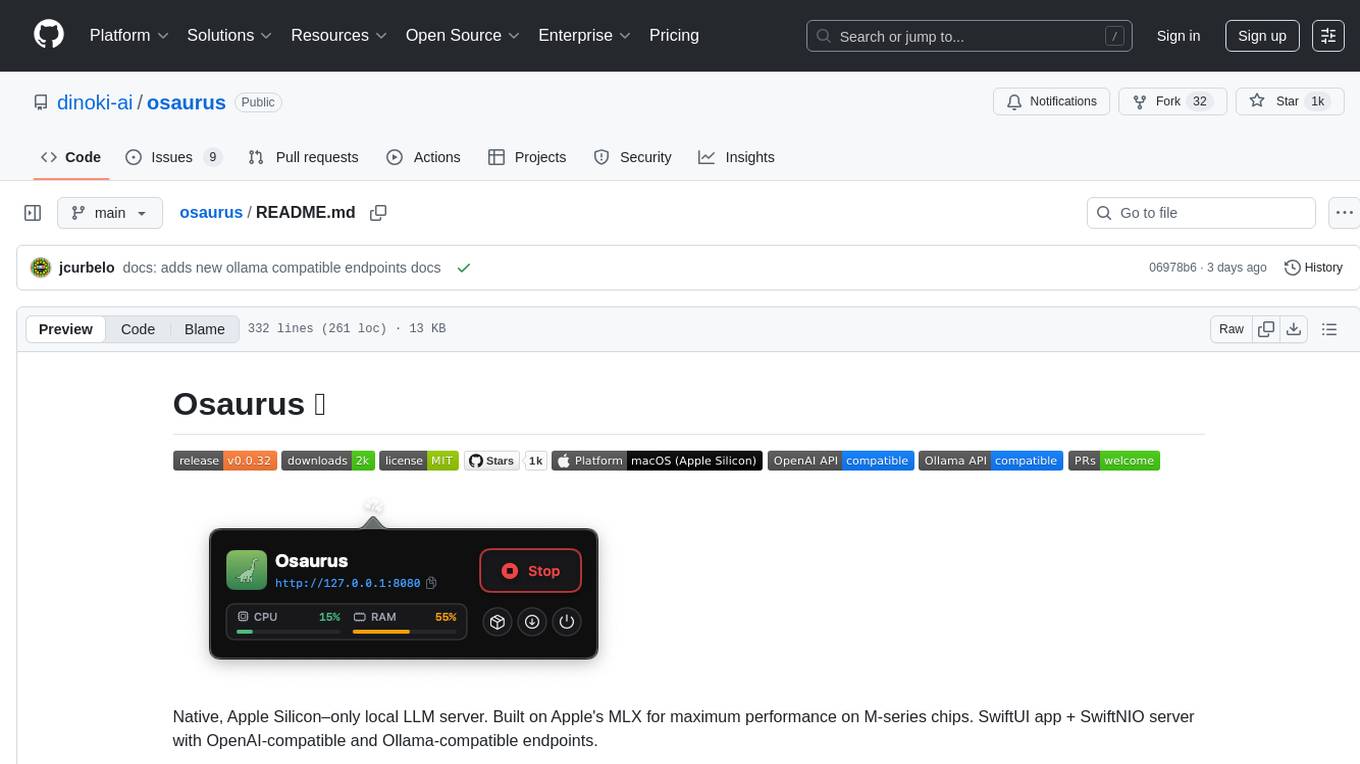
osaurus
Osaurus is a native, Apple Silicon-only local LLM server built on Apple's MLX for maximum performance on M‑series chips. It is a SwiftUI app + SwiftNIO server with OpenAI‑compatible and Ollama‑compatible endpoints. The tool supports native MLX text generation, model management, streaming and non‑streaming chat completions, OpenAI‑compatible function calling, real-time system resource monitoring, and path normalization for API compatibility. Osaurus is designed for macOS 15.5+ and Apple Silicon (M1 or newer) with Xcode 16.4+ required for building from source.
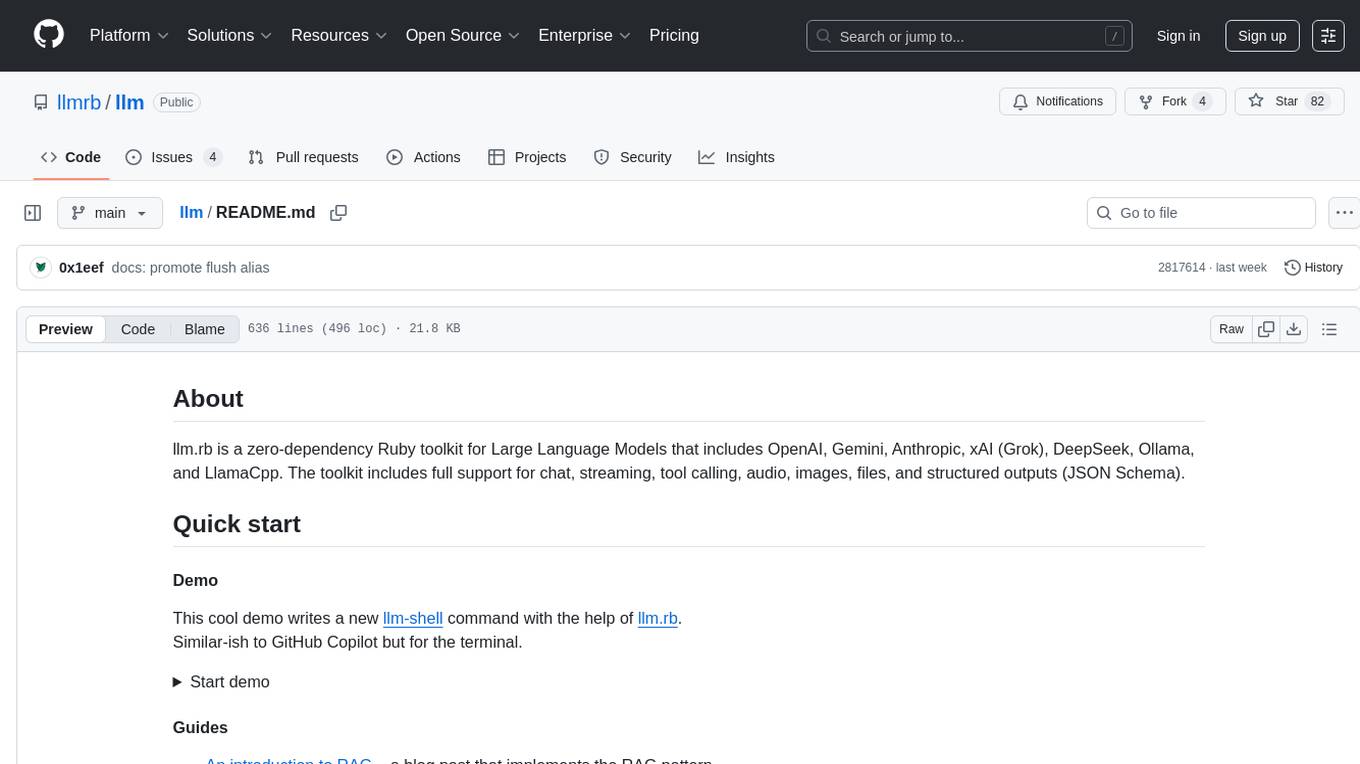
llm
llm.rb is a zero-dependency Ruby toolkit for Large Language Models that includes OpenAI, Gemini, Anthropic, xAI (Grok), DeepSeek, Ollama, and LlamaCpp. The toolkit provides full support for chat, streaming, tool calling, audio, images, files, and structured outputs (JSON Schema). It offers a single unified interface for multiple providers, zero dependencies outside Ruby's standard library, smart API design, and optional per-provider process-wide connection pool. Features include chat, agents, media support (text-to-speech, transcription, translation, image generation, editing), embeddings, model management, and more.
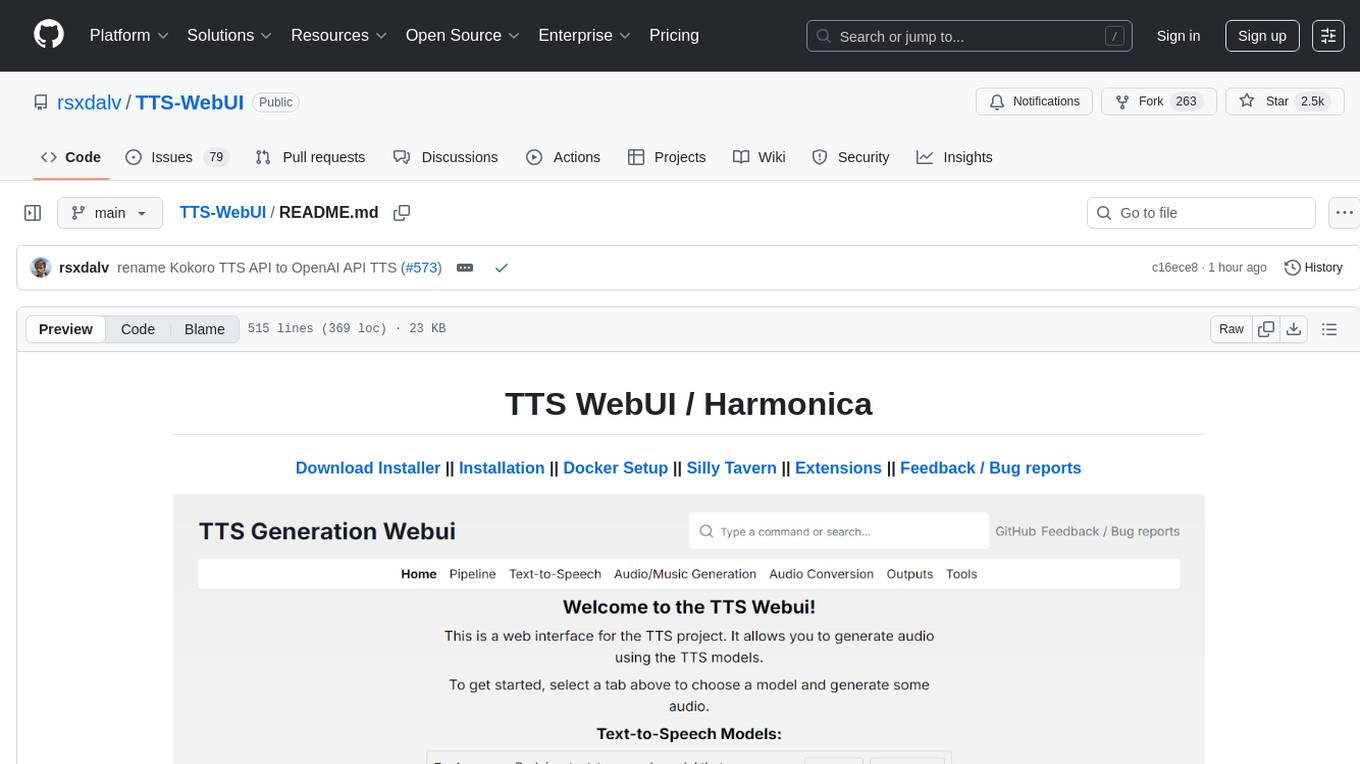
TTS-WebUI
TTS WebUI is a comprehensive tool for text-to-speech synthesis, audio/music generation, and audio conversion. It offers a user-friendly interface for various AI projects related to voice and audio processing. The tool provides a range of models and extensions for different tasks, along with integrations like Silly Tavern and OpenWebUI. With support for Docker setup and compatibility with Linux and Windows, TTS WebUI aims to facilitate creative and responsible use of AI technologies in a user-friendly manner.
20 - OpenAI Gpts

Instructor GCP ML
Formador para la certificación de ML Engineer en GCP, con respuestas y explicaciones detalladas.
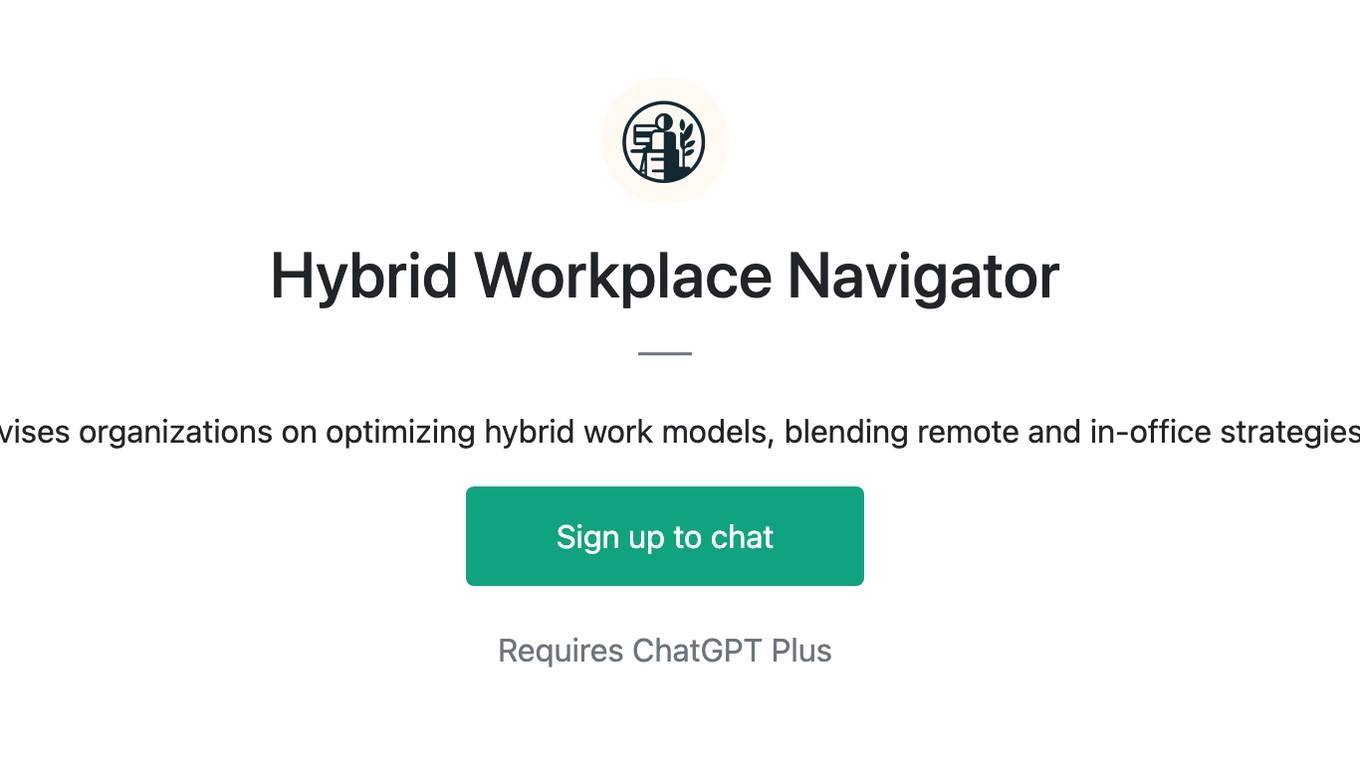
Hybrid Workplace Navigator
Advises organizations on optimizing hybrid work models, blending remote and in-office strategies.
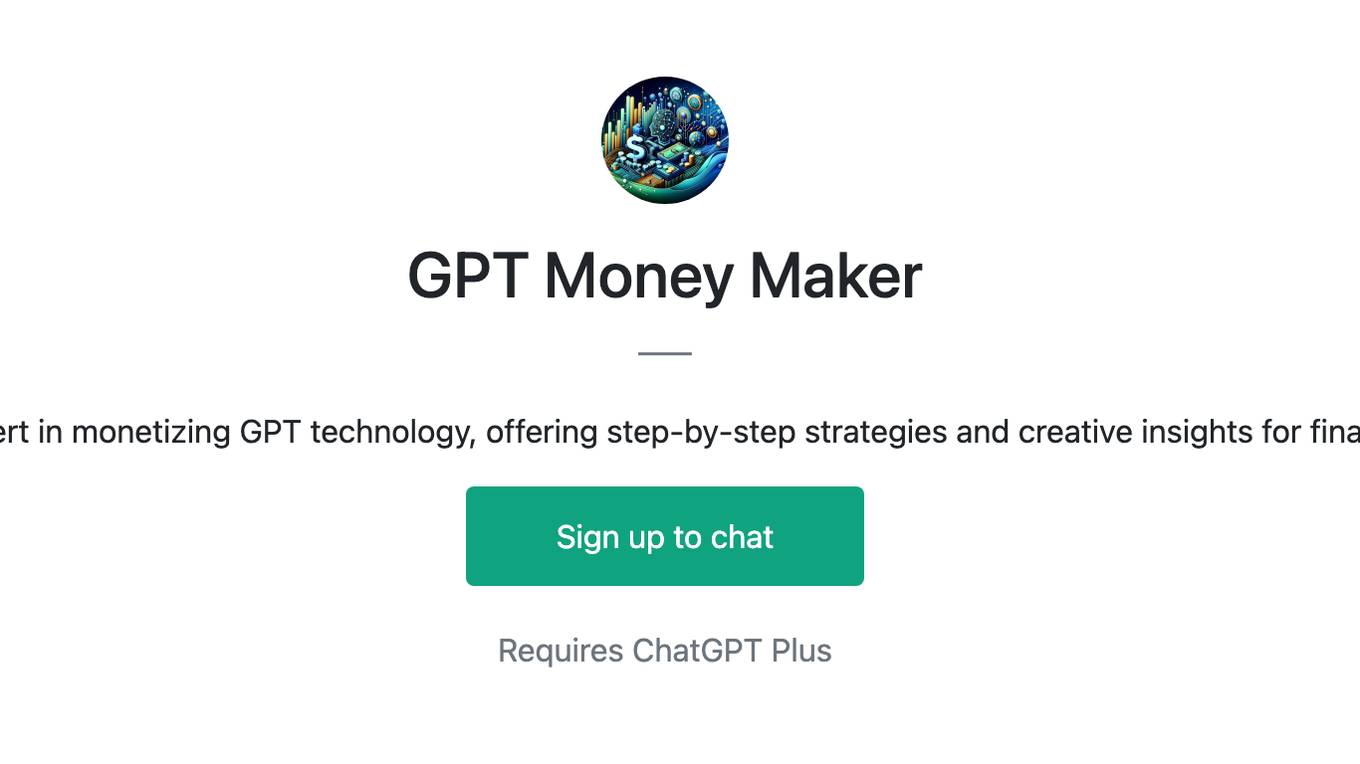
GPT Money Maker
GPT Money Maker is an AI expert in monetizing GPT technology, offering step-by-step strategies and creative insights for financial gain using GPT models.
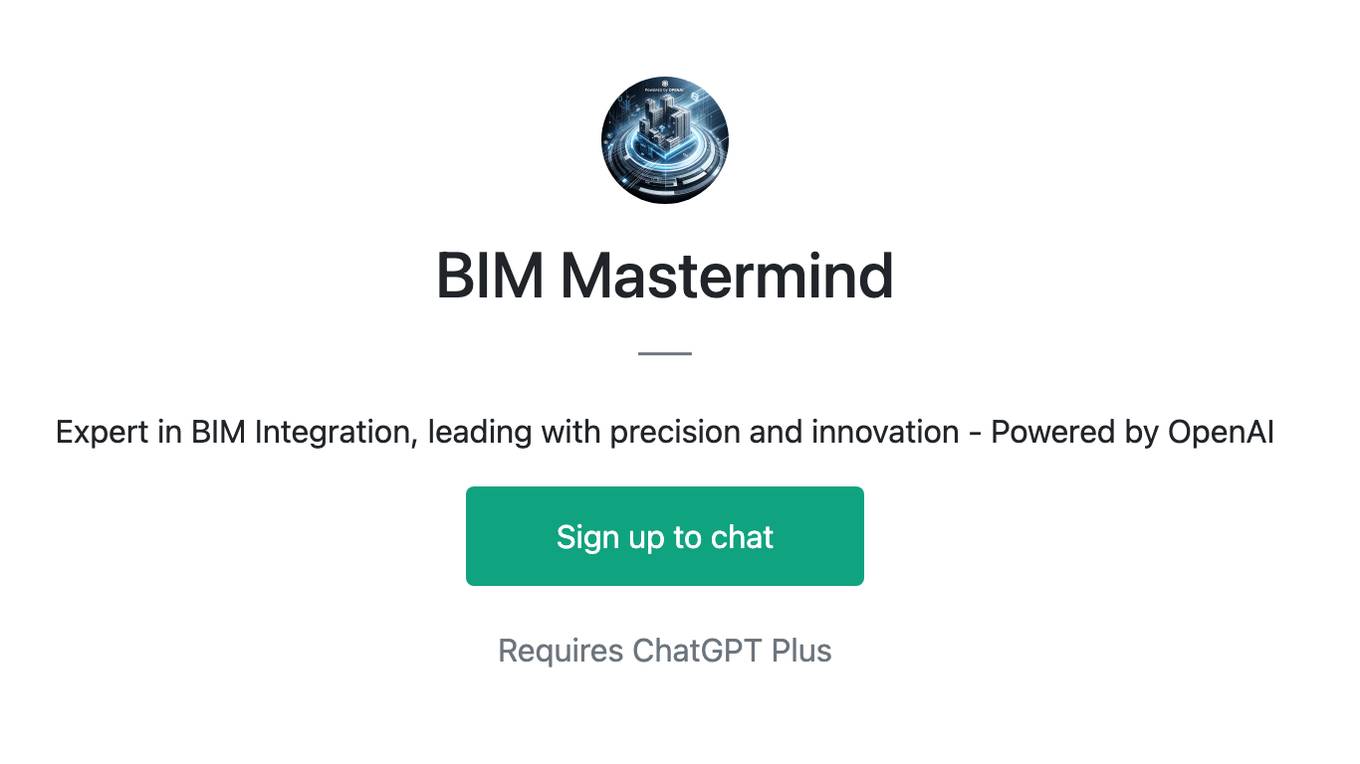
BIM Mastermind
Expert in BIM Integration, leading with precision and innovation - Powered by OpenAI
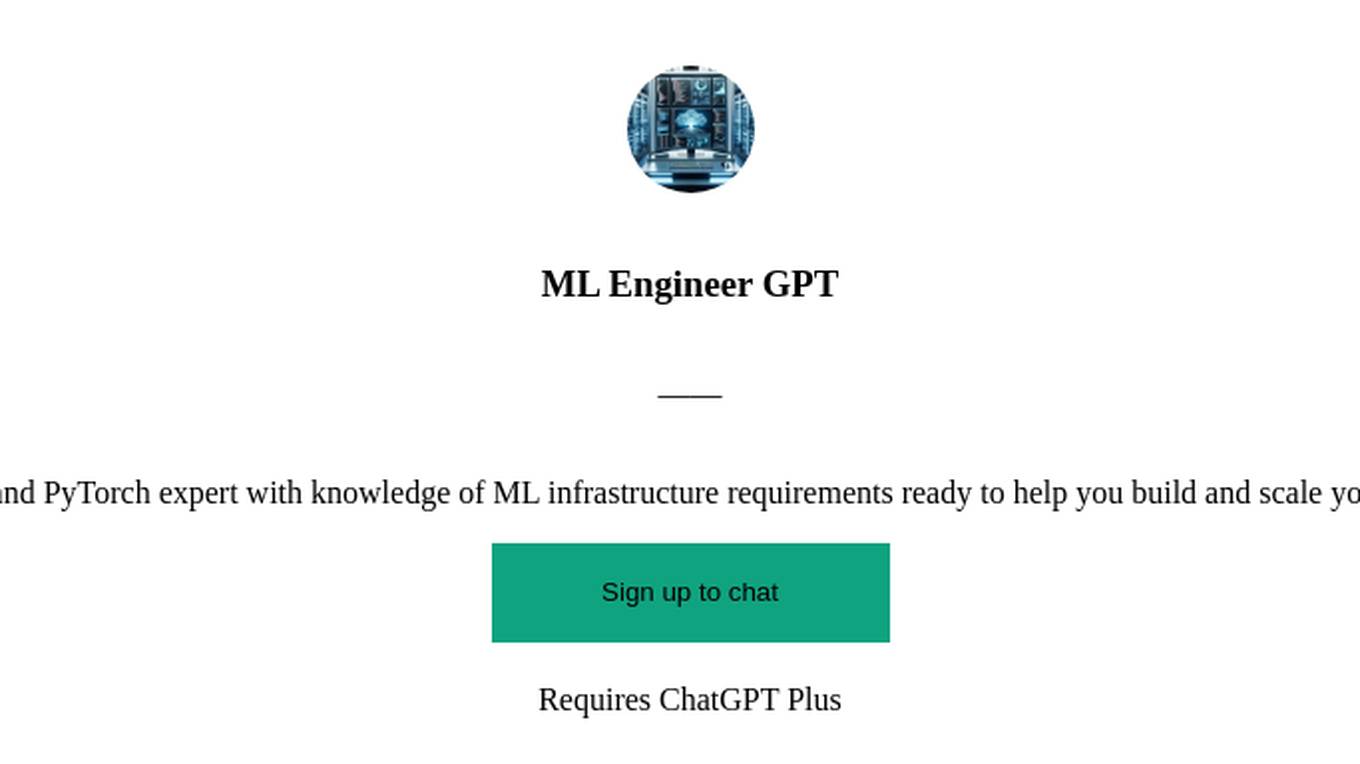
ML Engineer GPT
I'm a Python and PyTorch expert with knowledge of ML infrastructure requirements ready to help you build and scale your ML projects.

Corporate Finance GPT
Specialist in corporate finance, offering strategic insights and best practices.

Instructors in Global Economics and Finance
Multilingual support in Global Economics & Finance studies.
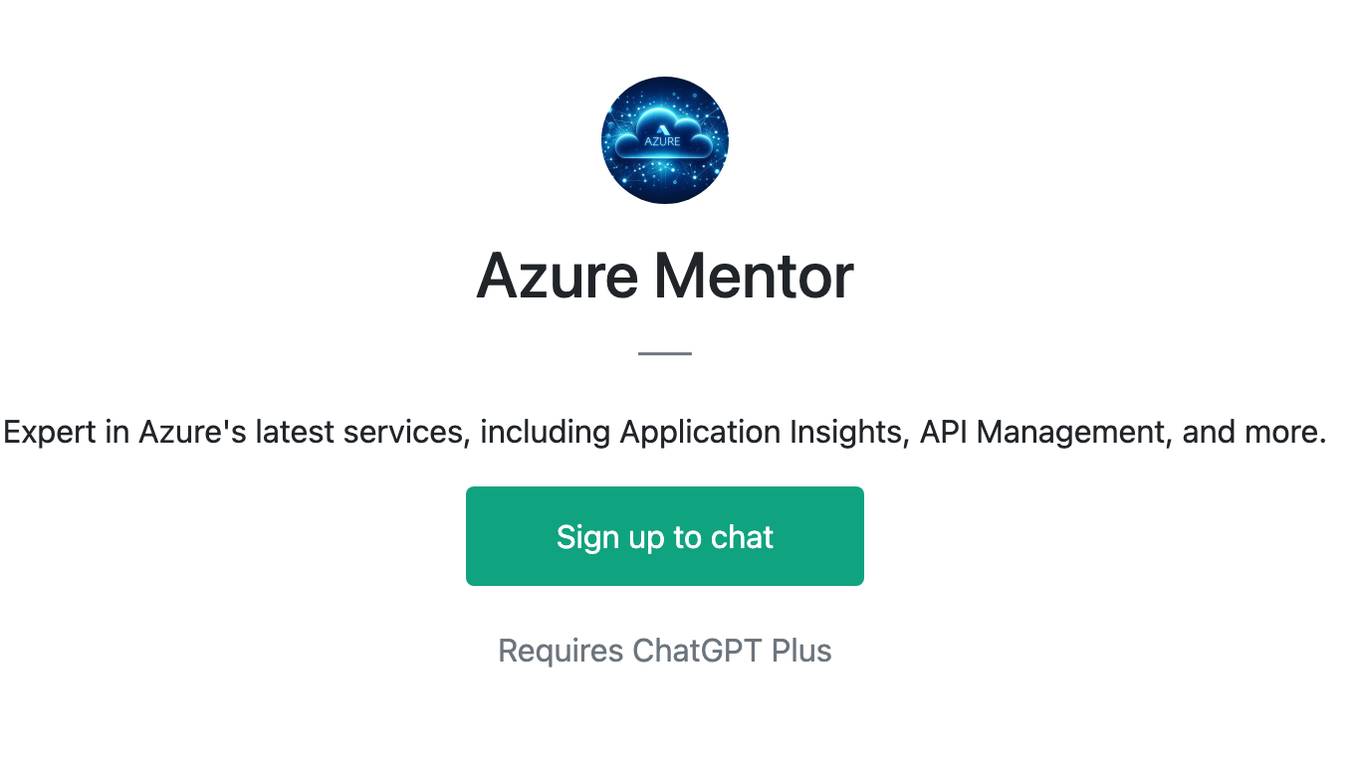
Azure Mentor
Expert in Azure's latest services, including Application Insights, API Management, and more.

Corporate Finance Advisor
Guides financial decisions by monitoring and enforcing policies and procedures.
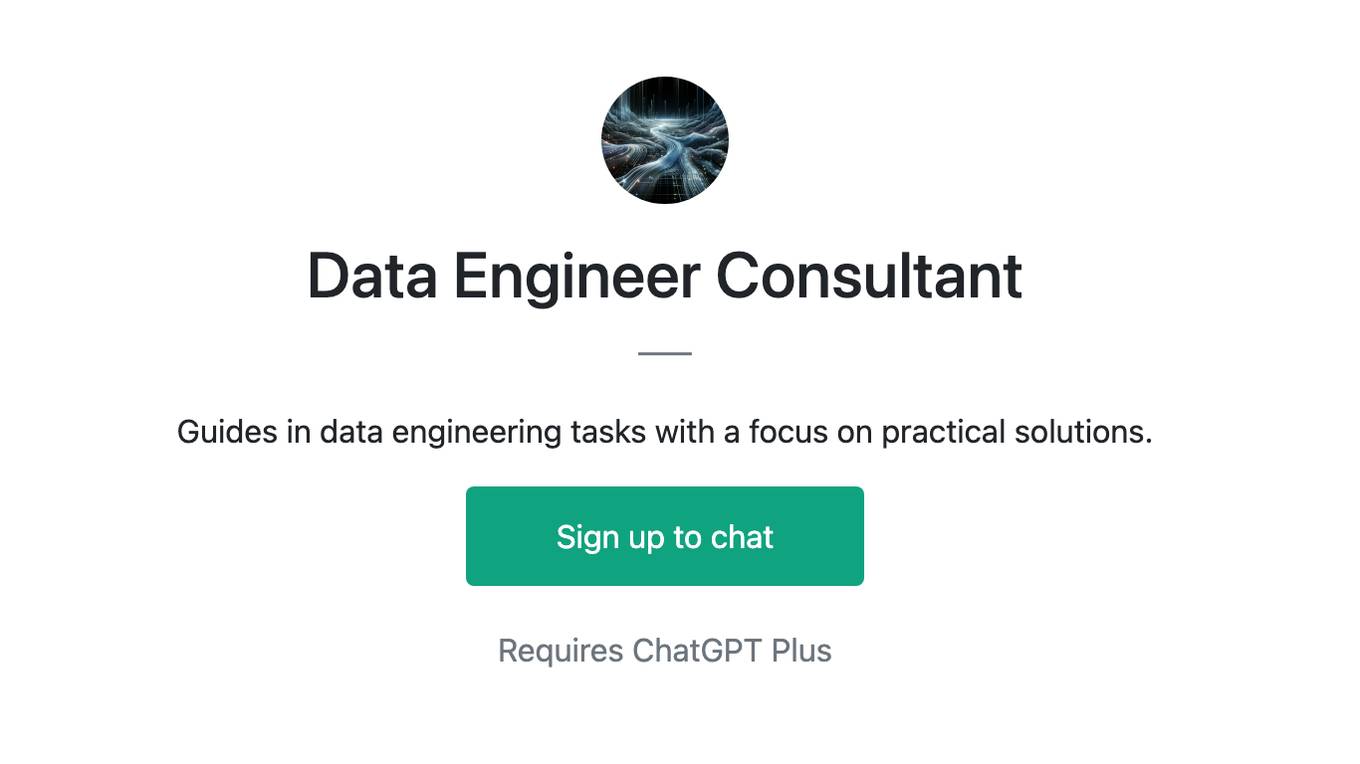
Data Engineer Consultant
Guides in data engineering tasks with a focus on practical solutions.


